|
In our noisy and busy world, we must be intentional to get away, be quiet, listen, and pay attention to the Divine Presence. A personal retreat is a response to God’s invitation in Psalm 46:10 to “Be still and know that I am God.” It is an opportunity to pay attention, experience God’s loving presence, and hear God’s voice. Jesus modeled this for us, often withdrawing to quiet places to pray. I recommend taking a personal retreat at least once annually. Here are a few options and tips for planning your own personal retreat, along with some "pros and cons" —though the "cons" are not reasons against but merely considerations. At-home retreat (if you can arrange for undisturbed alone time). If you have kids...plan a day retreat (or several days in a row) while they are in school, or see if they can stay with a relative or friend. Plan for a longer at-home retreat when they’re away at camp or visiting grandparents. Pros: No cost or travel, the comforts of home. Cons: Distractions and potential interruptions; additional logistics if you have kids. Tips:
Retreat at a monastery. A monastery provides a beautiful, sacred, and contemplative environment for a personal retreat. Pros: Gives you the opportunity to attend Liturgy of the Hours with the monastic community if you desire; many offer the option of a directed retreat, where you meet daily with a spiritual director at the monastery and receive prayer and Scripture suggestions for your times of prayer; most have nice guest houses with private rooms and beautiful sacred spaces and grounds where you can walk, pray, and reflect; meals provided (cafeteria style). Cons: If you haven’t been to a monastery before, the culture and services may seem foreign (most are happy to offer a brief orientation; you also could go on a group retreat to a monastery first before planning a personal retreat—I will be hosting one in 2025); you are subject to their calendar and availability; the nearest monastery may be several hours from your home; sometimes costs can be prohibitive. Tips:
Retreat at a cottage/guest house/Airbnb. Renting a space is another option for a personal retreat. Consider what environment will be most conducive to peace and rest for you—on or near water, in the mountains, in a beautiful rural setting. Pros: You choose the location and price range; privacy. Cons: May be more challenging to find a quiet location; may feel less safe/secure than in a monastery setting; have to provide your own food/meals; technology temptations; sometimes costs can be prohibitive. Tips:
Tips for Any Personal Retreat:
When it comes to choosing books to take with you on retreat, remember that less is more. This is not a time to learn and study but to marinate and savor. Read slowly...very slowly. Perhaps read only one chapter of a book, meditating on a paragraph or even one sentence at a time—reflecting, praying, journaling. Limit your "reading time" each day. I know how hard this can be! I LOVE books and usually take more with me than I need. So, I get it. Again, the idea is to savor, not satiate; to lean back, not strain forward; to receive, not achieve. Here are three ideas to help you choose (emphasis on choose from):
I hope these tips are helpful as you think about and begin to plan your own personal retreat. It's one of the best gifts you can ever give yourself!
0 Comments
When others ask how you’re doing, how often do you say you’re “fine” or “okay” even when you aren’t? Do you ever put on a mask, pretending all is well, when inside you’re doing all you can just to hold it together? We’ve all heard the phrase, “It’s okay to not be okay,” but do we live as if we really believe it’s true? “It’s okay to not be okay” sounds good. But when the rubber meets the road in our lives, we often revert to living by cultural conditioning that suggests some emotions are “acceptable” to show or share and others are not. Because of this conditioning, many of us have learned to repress, minimize, or ignore difficult feelings such as anger, sadness, and fear. We have learned to say “I’m fine” or “I’m okay” even when we aren’t. We have learned to apologize for our tears. And we have learned that admitting we’re not okay is something to be avoided. Let’s dig beneath the surface of this cultural conditioning and consider some of the reasons we’re reluctant to acknowledge we’re not okay. I’ve heard each of these statements in spiritual direction, and I’ve thought them all myself at one time or another. See if they resonate with you too. 10 Reasons I’m Reluctant to Say I’m Not Okay
On the surface these “reasons” for being reluctant to admit we’re not okay might seem logical—some even considerate or noble. After all, who wants to be inadequate, weak in faith, a burden, ungrateful, rejected, or needy, right? But here’s the thing. These reasons are actually false excuses because they stem from untruths we have believed about ourselves or others. In other words, they’re based on lies. I don’t know about you, but I don’t like to be deceived. So, let’s uncover the lies beneath these false excuses: 10 Lies That Keep Me from Admitting I’m Not Okay
These statements are not as easy to swallow, are they? We can see the deception in them much more readily. Read them out loud and consider what you would think, feel, and say if a friend were to say them to you during a difficult time. Recognizing the lies we have believed about being real with others enables us to see and receive the truth that leads us toward health. So, let’s rewrite these 10 statements once more, this time according to what’s true, making them powerful permission statements. 10 Permission Statements for When I’m Not Okay
These beautiful truths are worth meditating on so they may begin to rewire our brains (transform our minds) and sink deeply into our hearts. Which permission statement resonates most with you? Which one do you need to claim today? Write it on several sticky notes and post them where you will see them throughout the day. Turn it into a breath prayer. Journal about it, pouring out your heart to God in full transparency. Talk about it with a trusted friend, giving yourself permission to share what’s hard for you right now. Here’s the bottom line: Life is hard, and we’re not meant to handle it on our own! We are not meant to be self-sufficient. God created us with needs so that we can survive and thrive in relationship with God and with one another. And that requires being real about how we’re doing—especially when we’re not okay. 3 Resources If You Want to Go Deeper... Click each image to read about the book. Spiritual Direction Is a Safe Space to Be Real Imaginative prayer helps us to engage with God by interacting with Jesus in a Gospel story using our God-given gift of imagination. It is a way to encounter Jesus in and through the story as we “enter” into the scene fully using our five senses—imagining what we see, hear, smell, feel, and perhaps even taste. The idea is to become a participant or observer in the story. This is not going beyond the text of the Gospel but actually bringing the scripture alive for us, enabling us to experience Jesus—not just read about him. Christians have been practicing this form of scripture meditation and prayer for centuries. Saint Ignatius, who lived in the sixteenth century, realized that God can speak to us through our imagination just as through our thoughts and memories. He taught a way of praying with scripture using the imagination that that draws us closer to God through personal experience. “At the Cross” is an imaginative prayer exercise I wrote a few years ago and have used with various church groups and individuals during Holy Week (though it may be used at any time). It is intended to lead us in being present with Jesus in his final hours of suffering. When someone we love deeply is suffering, we just want to be with them, to be present to them even when we have no words and are powerless to end their suffering. I invite you to offer the same gift to Jesus—your compassionate presence. Just as you wouldn’t resist being near someone you love in their final hours, let your love for Jesus help you to press into these difficult scenes. Offering our loving presence to Jesus in his suffering can deepen not only our intimacy with him but also our awareness of his loving presence with us in our own times of suffering. Here are a few instructions for entering into this imaginative prayer exercise:
AT THE CROSS (All of the scripture readings are from the accounts of John and Luke in the New Living Translation.) Scripture Segment 1: John 19:1-4 and Luke 23:23-25 Then Pilate had Jesus flogged with a lead-tipped whip. 2 The soldiers wove a crown of thorns and put it on his head, and they put a purple robe on him. 3 “Hail! King of the Jews!” they mocked, as they slapped him across the face. 4 Pilate went outside again and said to the people, “I am going to bring him out to you now, but understand clearly that I find him not guilty.” 23 …The mob shouted louder and louder, demanding that Jesus be crucified, and their voices prevailed. 24 So Pilate sentenced Jesus to die as they demanded. 25 As they had requested, he released Barabbas, the man in prison for insurrection and murder. But he turned Jesus over to them to do as they wished.
Scripture Segment 2: Luke 23:26-27 26 As they led Jesus away, a man named Simon, who was from Cyrene, happened to be coming in from the countryside. The soldiers seized him and put the cross on him and made him carry it behind Jesus. 27 A large crowd trailed behind, including many grief-stricken women…
Scripture Segment 3: Luke 23:32 32 Two others, both criminals, were led out to be executed with him. 33 When they came to a place called The Skull, they nailed him to the cross…
Scripture Segment 4: Luke 23:33-38 33…The criminals were also crucified—one on his right and one on his left. 34 Jesus said, “Father, forgive them, for they don’t know what they are doing.” And the soldiers gambled for his clothes by throwing dice. 35 The crowd watched and the leaders scoffed. “He saved others,” they said, “let him save himself if he is really God’s Messiah, the Chosen One.” 36 The soldiers mocked him, too, by offering him a drink of sour wine. 37 They called out to him, “If you are the King of the Jews, save yourself!” 38 A sign was fastened above him with these words: “This is the King of the Jews.”
Scripture Segment 5: Luke 23:39-43 39 One of the criminals hanging beside him scoffed, “So you’re the Messiah, are you? Prove it by saving yourself—and us, too, while you’re at it!” 40 But the other criminal protested, “Don’t you fear God even when you have been sentenced to die? 41 We deserve to die for our crimes, but this man hasn’t done anything wrong.” 42 Then he said, “Jesus, remember me when you come into your Kingdom.” 43 And Jesus replied, “I assure you, today you will be with me in paradise.”
Scripture Segment 6: John 19:25-27 25 Standing near the cross were Jesus’ mother, and his mother’s sister, Mary (the wife of Clopas), and Mary Magdalene. 26 When Jesus saw his mother standing there beside the disciple he loved, he said to her, “Dear woman, here is your son.” 27 And he said to this disciple, “Here is your mother.” And from then on this disciple took her into his home.
Scripture Segment 7: Luke 23:44-49 44 By this time it was about noon, and darkness fell across the whole land until three o’clock. 45 The light from the sun was gone. And suddenly, the curtain in the sanctuary of the Temple was torn down the middle. 46 Then Jesus shouted, “Father, I entrust my spirit into your hands!” And with those words he breathed his last. 47 When the Roman officer overseeing the execution saw what had happened, he worshiped God and said, “Surely this man was innocent.” 48 And when all the crowd that came to see the crucifixion saw what had happened, they went home in deep sorrow. 49 But Jesus’ friends, including the women who had followed him from Galilee, stood at a distance watching.
A Time of Response Jesus, you humbled yourself in obedience to God and died a criminal’s death on a cross. You endured the cross, disregarding its shame so that you might overcome sin and death and make us alive in you. Lord, thank you for enduring the cross. Thank you for being so present to me today as I have been present to you in your suffering.
It’s hard to fully enter into a new year when we haven’t released the previous one. A helpful and healthy practice for the first few weeks of the year is to review and release what has been—both the lows and the highs, the bad and the good. Unless we release our grip on what has been, and then release our grip on what is to come, we cannot fully open ourselves to welcome whatever God desires for us this year.
One tool that can help us to review and release while renewing our covenant with God is a prayer of surrender called the Wesleyan Covenant prayer. This prayer has been used at the beginning of the new year by Christians in the Wesleyan tradition for more than 250 years, and it has much to offer us today regardless of our denominational background or affiliation. The prayer aligns with Jesus’ invitation in Luke 9:23: “If any want to become my followers, let them deny themselves and take up their cross daily and follow me.” As we pray the prayer, we’re reminded what surrendering to God looks like: self-giving and self-emptying love. I invite you to read the prayer slowly, paying attention to your internal responses as you read. Notice if a word or phrase stands out to you—or perhaps challenges you.
Modern Wesley’s Covenant Prayer
I am no longer my own, but yours, God. Put me to what you will, rank me with whom you will. Put me to doing, put me to suffering. Let me be employed for you or laid aside for you. Exalted for you or brought low for you. Let me full, let me be empty. Let me have all things, let me have nothing. I freely and heartily yield all things to your pleasure and disposal. And now, O glorious and blessed God, Father, Son, and Holy Spirit, You are mine, and I am yours. So be it. And the covenant which I have made on earth, Let it be ratified in heaven. Amen. These words can be jarring when we first read them, especially a phrase like “put me to suffering.” So, let’s pause there just a moment. Because Wesley did not believe in determinism—the idea that everything that happens is God’s will—we know this phrase does not imply God causes our suffering. Scripture tells us that God's heart is for healing and restoration and wholeness. Suffering is a given in this broken world, and God’s desire is to enter into our suffering and redeem it. We see this clearly in the life, death, and resurrection of Christ. Perhaps these words by pastor and author Robert Schnase may help our understanding: "No sane person desires suffering, or would invite it. 'Put me to suffering' reminds us that following Christ brings us into contact with those who suffer, and it wounds us to touch the pain of others. When the Spirit moves us to the side of those who are alone, hurting, unjustly treated, grieving, the victims of violence, poverty, or hopelessness, we can’t go there without receiving our own scars, without putting ourselves at some level of risk. To what extent are we willing to face inconvenience and suffering to follow Christ? Are we able to absorb anger, violence, or rejection in order to serve Christ?"[1] We see that the entire prayer is a radical surrender—a self-giving—to Christ and his kingdom work. It reminds me of another radical prayer of surrender written by Saint Ignatius of Loyola in the 16th century called the Sucipe, which means receive. To pray the Sucipe is to invite God to receive all of oneself. Read the prayer below and, once again, notice if a word or phrase stands out to you.
Sucipe
Take, God, and receive all my liberty, my memory, my understanding, and my entire will. All I have and call my own. You have given all to me. To you, God, I return it. Everything is yours; do with it what you will. Give me only your love and your grace. That is enough for me. —Saint Ignatius
In this prayer we acknowledge that all we have, including our very lives, is a gift of God; then we give all back to God, asking only for his love and grace. Radical prayers of surrender such as the Sucipe and the Wesleyan Covenant Prayer are about full surrender. They help us release all to God—all we have and all we desire; all we’ve experienced and all we long for—so we may come to a place of inner rest and peace. Ignatius called this “holy indifference.”
When we hear the word indifference today, we tend to think of apathy. But Ignatius was not talking about spiritual apathy, as in “God’s going to do what God’s going to do, so I don’t care.” Holy indifference means releasing our preferences or agendas about how our lives “should” unfold and trusting God to lead us. It is the place where we can say, “I want what God wants. And whatever God wants is okay with me.” It is choosing to discern and follow God’s guidance, even when the road is rocky. This kind of surrender requires trust in God built on a foundation of love and grace. It requires us to trust that God loves us and is for us, believing that “God causes everything to work together for the good of those who love God” (Romans 8:28 NLT, emphasis added). It is a full surrender, a giving of the whole self. It can be helpful to understand that in the life of faith, there are two kinds of surrender, or self-giving:
The first kind of surrender is a one-time moment, although there can be special times in our lives when we want to recommit our lives to Christ and publicly express our renewed commitment. The second kind of surrender is an ongoing process of self-giving and surrender through which we release more and more of ourselves and our lives to God. At times this process involves wrestling with God. All the great heroes of faith wrestled with God.
I don’t know about you, but it helps me to remember that I’m in good company when I struggle to surrender! Even so, I can get frustrated with myself when I struggle. Why is it so hard to surrender sometimes? Here are a couple of thoughts about that.
Jesus was fully human, so he had a natural human instinct to avoid pain and suffering. Yet after wrestling with God in the garden, Jesus came to a place of surrender, accepting what lay before him. When we’re unable to come to a place of surrender after wrestling with God, this may reveal an area in our lives where we have attachments—people, things, or circumstances we think must be a certain way in order for us to be okay—or trust issues with God, usually because of past disappointments or hurts. Rather than judging or criticizing ourselves when we struggle to surrender, which only keeps us stuck, we can offer ourselves self-compassion and take a first step toward growing our trust in God. What is that first step? Be authentic with God about the reality of our struggle and open ourselves to experience the love and grace of God just as we are. As we experience God accepting us and loving us as we are—with all our fears, concerns, questions, and hesitations—we begin to trust God’s heart toward us. And the more we trust God’s heart toward us and experience his love for us, the more we're willing to surrender to him. As this happens, we find it feels safe to ask God to reveal our attachments and our trust issues, along with the underlying reasons, so we can open ourselves to God’s healing. Wherever you are today on the journey of surrender, there is grace upon grace, my friend! Remember this: just as the father of the possessed boy in Mark 9:24 said, “I believe, help my unbelief,” we can pray, “I surrender, help my struggle to surrender.” We can pray the Wesleyan Covenant Prayer, or any prayer of surrender, knowing that we have surrendered, and there is more to surrender. And our loving God will be faithful to lead us every step of the way.
A Guided Prayer Exercise Using the Wesleyan Covenant Prayer
This guided prayer exercise will lead you in a process of releasing what has been and what is yet to be so that you may welcome whatever God has for you in the new year. Remember, it is possible to surrender while also praying, "Help my struggle to surrender." Surrender is a process, and we are on the journey! (You will need approximately 20 minutes for the prayer exercise.) [1] http://robertschnase.com/blog/105-wesleys-covenant-prayer-part-ii/ There are many benefits to expressing our emotions in a healthy way, yet most of us struggle to do it. We explored why in last month's blog. (See October 5, "You Have to Feel It to Heal It.") Add in the stressors and expectations of the holiday season, and it can be challenging to manage our emotions this time of year under the best of circumstances, much less if you are navigating difficult circumstances or loss. But what if managing our emotions is an unhelpful concept? What if, rather than managing our emotions, we could simply befriend them instead? Managing suggests overseeing, supervising, and bearing responsibility for outcomes. It sounds like work! Befriending, on the other hand, suggests acting as a friend, offering help or support. Befriending your emotions is being a compassionate friend to yourself regardless of how you are feeling, offering yourself the same grace and kindness you would extend to a close friend. It's a kinder, gentler approach to healthy emotional expression that enables you to gain understanding about what’s happening within you so you can respond in healthy, beneficial ways. Instead of having one more thing to manage during the holidays—your emotions—allow yourself to feel what you feel and respond to your emotions with gentleness and kindness. That sounds more inviting, doesn't it? And more doable. So, practically speaking, how do we do it? What does it look like to befriend our emotions—at holiday time or anytime? Let’s walk through some basic steps together, keeping in mind that they are not necessarily linear. 1. Normalize your emotions, including painful ones. Despite cultural tendencies to minimize emotions and apologize for emotional expression, having and expressing emotions is not bad or undesirable. It simply means you’re human. This is especially important to keep in mind when it comes to painful emotions. Because our culture encourages us to “get over it” and move on, we must remind ourselves regularly that it’s okay not to be okay—it’s okay to have painful emotions. Having painful emotions is a necessary part of the human experience. Emotions are gifts of God meant to be our teachers or guides as we become aware of our needs and desires so we can make choices that move us toward emotional health. As Chip Dodd expresses in his book The Voice of the Heart, emotions are like lights on the car dashboard—they tell us what’s going on inside us, pointing us to what needs our attention. It can be difficult for us to acknowledge painful emotions at the holidays, especially when we think everyone else is celebrating what is said to be "the most wonderful time of the year." But the truth is that despite any song lyric, painful emotions are common this time of year. According to statistics, levels of anxiety and depression increase—not decrease—during the holidays. Rather than trying to downplay or ignore painful emotions in order to measure up to unrealistic holiday expectations, try normalizing the full spectrum of your emotions instead. Remind yourself that whatever you might be feeling in any moment, you are not alone. Many others are feeling just as you are. As human beings, we feel a variety of emotions on any given day, and that remains true during the holidays. We don't expect ourselves to be happy and joyful 24/7 any other time, so why do we do this to ourselves during the holidays? Let your mantra this holiday season be "It's okay to feel however I feel." It's not only okay, it's the best way to move through your feelings and respond in healthy ways. SOME THINGS TO TRY
2. Become aware of your emotions and name them. Dr. Dan Siegal, professor of psychiatry at the UCLA School of Medicine, has said that when it comes to unpleasant emotions, you have to “name it to tame it.” Science has shown that putting our feelings into words actually reduces the intensity of the emotions. Simply noticing and naming a feeling as it is happening decreases the stress in the brain and body caused by the emotion. When you name your feelings, you "tame" them by acknowledging them, enabling them to soften. Most of us were not taught or encouraged to name our emotions, so it can feel awkward or even challenging for some of us. But with just a little intention, we can learn to do it. The key is to be persistent and patient with ourselves in the process. SOME THINGS TO TRY
3. Welcome your emotions. Often we want to get rid of painful emotions, not welcome them. A common way we try to do this is through positive thinking. Yet despite popular opinion, positive thinking is not an effective way to handle emotions if it keeps us from authentic emotional expression. An emotion must be acknowledged and witnessed in order to be released. Positive thinking without this honest witnessing is more like emotional bypassing. We do a similar thing when we use scriptures or religious platitudes as a way to avoid painful emotions—called spiritual bypassing. Though it may sound counterintuitive, welcoming your emotions helps you move to a place of authenticity, non-judgmental awareness, and acceptance—all of which fosters healing. Though some are reluctant to welcome emotions because they are afraid they will get stuck in those feelings, the opposite is actually true. Welcoming emotions reduces internal conflict and resistance, allowing us to benefit from our emotions and move through them. SOME THINGS TO TRY
4. Allow yourself to feel your emotions. In addition to naming and welcoming your emotions, it's important to allow yourself to truly feel everything that a particular emotional experience might elicit. Sometimes an experience will prompt conflicting emotions, such as a situation that causes you to feel both happy and sad for different reasons. Give yourself permission to honor every emotion. Every feeling is valid and requires expression if you are to move through it. Feeling our emotions moves us to a place of integration and healing rather than disintegration and internal chaos. Because most of us are unable to plumb the depths of our emotions in the moment, we must be patient and give ourselves space, over time, to sit with our emotions as we're able. Depending on the emotion or experience, it might take days, weeks, months, or perhaps even years to give full expression to our feelings. When it comes to feeling our emotions, slower is faster. Rather than speeding through the process, give yourself permission to feel your feelings in manageable increments over time—for as long as it takes. Rather than predetermining the ending date for the process, trust that it will take as long as it takes, and that God will guide you. During the holidays, this means giving yourself permission to choose the activities you're able to participate in and those you are not. It means allowing yourself time and space to feel your feelings. And it means letting go of expectations and outcomes, which can inhibit our true feelings. SOME THINGS TO TRY
5. Get curious about your emotions and listen to them. Your emotions are messengers bringing information essential to your healing and wholeness. All emotions, particularly those you would rather avoid, are here to tell you about your hurts, wounds, needs, and desires. They are guides leading you to parts of yourself that need healing. Instead of being critical or judging your emotions, move to curiosity. Listen to them as you would to a good friend, and learn what they need you to know. Only then will you be able to respond in a compassionate and beneficial way. One of the reasons we resist our emotions is we're afraid they will take us over and overwhelm us. Often the opposite is true. When we stop trying to suppress, numb, or control our emotions and allow them to have a voice, they tend to soften. The parts of our soul that are holding emotion want to be heard, and when we are willing to listen, often it is no longer necessary for them to be loud or unreasonable. SOME THINGS TO TRY
6. Offer yourself self-compassion and understanding. Once you have listened to your emotions with curiosity and compassion, you're better prepared to offer yourself self-compassion and understanding. For most of us, self-criticism comes much more easily than self-compassion. We tend to beat ourselves up for faults, both big and small. But according to psychologist Kristin Neff, self-criticism comes at a price, making us anxious, dissatisfied with life, and even depressed.* The key to offering yourself self-compassion and understanding is treating yourself with the same kindness and caring support that you would show to someone you care about. Doing this regularly leads to genuine care for your own well-being, producing deep emotional benefits. SOME THINGS TO TRY
7. Allow your emotions to be witnessed by God and others. Witnessing is an invaluable step when it comes to processing our emotions and moving toward healing. God designed us for relationship, and we find healing as we allow God and safe people (those who will not judge us or try to fix us) to witness our pain with love and compassion. As someone who has tended to push down grief all my life, this is something I'm stepping into more intentionally myself. Though my father passed away almost four years ago, recently I sensed God inviting me to allow my unprocessed grief to be witnessed in community by attending a grief group at my church. On the week when we shared our stories, I was amazed by the depth of emotion that surfaced as I shared the account of my father's death despite the passage of time. I experienced how valuable it is for grief to be witnessed, validated, and comforted even after the passing of time. When there are unprocessed emotions, there is a need for them to be witnessed. Depending on your life experiences, you may find it easier to share with others before you're ready to be completely real with God about how you're feeling, even if you know that God knows already. If wounds have affected your image of God or your ability to trust God, you may find it helpful to share with a trusted person before baring your soul to God in prayer. Or you may find it easier to be vulnerable and authentic about your emotions with God first, which helps prepare you to share later with others. As others see us, hear us, and are with us in our pain, they serve as conduits of the loving presence of God, creating healing experiences. SOME THINGS TO TRY
My prayer for you is that learning to befriend your emotions will help you to love yourself well, deepen your relationship with God, and experience greater healing and joy—in every season. Recommended Resources: (Click links below to read book descriptions) The Voice of the Heart, Chip Dodd Emotionally Healthy Spirituality, Peter Scazzero No More Faking Fine, Esther Fleece The Body Keeps the Score, Bessel van der Kolk Permission to Feel, Marc Brackett *"The Power of Self-Compassion," Jason Marsh, Greater Good Magazine, March 14, 2012. There’s a popular saying that packs a wealth of wisdom: You have to feel it to heal it. Our emotions are gifts of God intended to give us important information about what’s happening within us so we can gain understanding and respond in healthy ways. Yet, despite this incredible discernment tool God has given us, most of us are reluctant to sit with our emotions for very long—unless, of course, the emotion is gladness or joy. Some of us struggle even to name our emotions. Why is this? Barriers to Healthy Emotional Expression Understanding the barriers we face helps us to address them. So, let’s explore three barriers to healthy emotional expression. See if one or more of these resonates with you. 1. Our resistance to pain makes sense neurologically. All pain, whether mental or physical, has a common neurological circuitry. The brain perceives emotional distress as a threat and processes it in a way similar to physical pain. Because we’re hardwired to react to threats with a fight-flight-freeze-fawn response, most of us attempt to eliminate or fix (fight), minimize or run from (flight), numb and ignore (freeze), or please and appease (fawn) painful emotions. 2. Painful emotions are uncomfortable. When we respond to a perceived threat with fight, flight, freeze, or fawn, the sensation generated by our body chemistry is anxiety, which is intended to motivate us to take action to escape the threat or danger in some way. Because anxiety is uncomfortable, we naturally want to avoid it. Digging beneath the anxiety to identify the underlying emotion and then listen for what it wants us to know can feel like work, which tends to accentuate our discomfort. 3. Socialization plays a major role in our tendency to resist painful emotions. Many of us grew up thinking that showing emotion is showing weakness or inferiority. Our culture encourages us to be strong, independent, and resourceful, making the most of the hand we’re dealt. Did you ever hear, “Stop crying or I’ll give you something to cry about,” or “It could be worse; other people have bigger problems than this,” or something similar? As a result, we come to believe that crying in the presence of others is neither advisable nor acceptable. No wonder most of us say “I’m sorry” when we begin to cry in the presence of others! One of the things find myself saying repeatedly in spiritual direction is, “No need to apologize. You never have to feel sorry for showing emotion.” For many of us who are part of a faith community, showing emotion is not necessarily about showing weakness but about revealing a weak faith. Tragically, strong faith often is conflated with emotional control. The erroneous thinking is that those who rely on God are in control of their emotions, while those who are weak in faith are more outwardly emotional. To illustrate this way of thinking, consider a few examples. Have you ever attended a funeral and heard someone say, “She’s holding it together and doing so well; she has such strong faith”? Though it may be true that she has strong faith, a lack of emotional expression is not evidence of that faith but, in fact, might be the result of shock or denial—two stages commonly experienced early in grief. Or, have you ever been struggling emotionally only to have some well-meaning soul offer a spiritual platitude or scripture verse as a spiritual Band-Aid for your pain? Rather than validating your pain and compassionately witnessing your expression of that pain, their discomfort with your outward expression of emotion compels them to try to fix or soothe it. Or, have you ever told yourself something along these lines: “I don’t know why I’m being so emotional about this. I know God is in control. God’s got this.” While it’s true that God is in control, it’s also true that God gave you the gift of emotions to help you navigate the challenges of life. Trusting God does not mean pushing down our emotions. In each of these examples, spirituality is used as a shield or defense mechanism, rather than allowing ourselves and others to feel our emotions and work through them. This is called spiritual bypassing, and it is a subtle yet harmful way of using faith to avoid painful emotions. Here's the reality: Any sentiment, whether spiritual or otherwise, that denies the reality or depth of our pain and the necessity for it to be expressed and witnessed by others only delays the healing process. Do you relate to these three barriers? If so, it simply means you’re human. The good news is that when we stop putting up barriers and trying to resist our emotions, real healing can begin. What We Resist, Persists Another true saying you may have heard is, What we resist, persists. Though we may be successful in suppressing—or consciously blocking—painful emotions for a while, eventually they will seep out sideways or demand our attention in other ways, such as depression, addiction, or even physical illness. Because suppressing emotions keeps the fight-flight-freeze-fawn response activated, the body is continually under attack from stress hormones, causing inflammation and a higher propensity for developing illness or disease. This does not mean that unexpressed emotions are the cause of illness or addiction, but they certainly can be contributing factors. A similar thing happens when we repress emotions, which is an unconscious blocking of unwanted emotions. Sometimes we’re not even aware that we are pushing down painful emotions. We may think we’ve dealt sufficiently with sadness, grief, anger, fear, or shame and have returned to “normal” when we’ve merely pushed down our emotions and moved on much too quickly. The result, as Bessel van der Kolk explores in his book The Body Keeps the Score, is that unprocessed emotions remain within us, affecting our minds and bodies. He encourages and challenges us with these words: “Neuroscience research shows that the only way we can [heal] is by becoming aware of our inner experience and learning to befriend what is going on inside ourselves.” Befriending Our Emotions To befriend is to act as a friend, offering help or support. It is listening to, bearing witness to, and offering loving presence to another. If you’ve ever had someone do this for you, then you know the power of being seen, known, and loved just as you are—whatever you may be feeling. Here’s a liberating truth: We can befriend ourselves by being a loving witness to what is happening within us. We can teach ourselves to become aware of our emotions, allow ourselves to feel them, and offer ourselves self-compassion and understanding. This is a skill that many of us have not been taught, but it is never too late to learn. I've been on a journey of intentionally befriending my emotions for about six years, and I'm still a work in progress. About a year ago God gave me an insight about my childhood that helped me to realize why grieving is so difficult for me. Though I had never understood it this way before, I came to see that loss was a normal part of my childhood. As a preacher's kid in the United Methodist Church, moving was a regular occurrence, which meant picking up and starting over again. Saying goodbye to friends and schools and neighborhoods and church families and routines was a regular occurrence. There wasn't time or space to grieve what was ending or lost. We had to move and adjust quickly to a new environment. No time to grieve or look back. It was full steam ahead. I never learned to sit with my grief, much less welcome it. There is no blame here; it was simply how things were. And I know kids in military families experience this to an greater degree. If I'm honest, I've pushed grief down all my life. I've allowed myself to spend time with grief in very short allotments, but then I'm off again to what's next, what's ahead. Always looking forward, not back. I believed sadness was like one of the friends I had to say goodbye to in order to embrace the new. That was the lie I believed. God has been inviting me—and teaching me—how to sit with grief. I'm a slow learner, but I'm committed to the process. Recently while listening to a podcast on healing from sorrow and grief, I realized that allowing my grief to be witnessed in community has been a missing link for me. So, I have decided to participate in a grief class offered by my church this fall. It feels uncomfortable, and a part of me even thinks it's silly to participate almost four years after my father's passing, but I know I haven't fully grieved his death—and I certainly haven't grieved in community. And I suspect there are many other griefs—some decades old—that have not been witnessed or fully expressed. I'm trying to practice what I teach others, and I know the good will outweigh the hard. Despite the barriers we face when it comes to acknowledging and expressing our emotions, the benefits of doing so always outweigh any momentary discomfort we might feel. Take a look at some of these benefits of befriending your emotions: Sounds good, right? I'm going to keep this list before me, and I encourage you to do so as well. Let's remember that befriending our emotions is a learned skill we can become more proficient in, and it will get easier with practice. Next month I'll be sharing six suggestions, or steps, for befriending and handling our emotions in a healthy way. Until then, every time you are tempted to resist or suppress your emotions, gently remind yourself, "You have to feel it to heal it." I'll be doing the same! It has been quiet here on the blog for a few months—about four, to be exact. For a while I told myself it was just a busy season. Then I began to call it writer’s block, which it was. But after reflection and prayer, I’ve come to understand the reason. Though I won’t go into the details here, here’s the crux of it: My soul needed a sabbatical. A traditional sabbatical is an extended period away from work—most often granted in academia, though more and more companies and institutions are offering paid or unpaid sabbaticals these days due to increasing levels of burnout. Generally, a sabbatical is anywhere from two months to a year, with six months being standard. Sounds nice, right? Can you just imagine what you would do with that kind of free time? Though it would be wonderful to take a literal sabbatical, few of us have that option. But we can take what I’m calling a “soul sabbatical.” A soul sabbatical is giving ourselves permission to let go of unnecessary demands or unrealistic expectations—often ones we've placed upon ourselves. A soul sabbatical is giving ourselves permission to let go of unnecessary demands or unrealistic expectations—often ones we’ve placed upon ourselves. It’s stepping away from “productivity mode,” which our culture instills in us from a very young age. Productivity is about performance—ensuring outputs exceed inputs and striving for excellence. That may be good for business, but it’s bad for the soul. When we try to get more done than we have the internal resources for, our bodies will begin shutting us down in one way or another. We cannot continue giving more than we’re receiving and expect to avoid a dry spell—or, eventually, burnout. There’s a time and a place to be productive, but the problem is that we tend to apply the productivity mindset to virtually every area of our lives. Our culture tells us that if something is worth doing, then it’s worth doing more, better, and faster. We might say that “more, better, faster” is a mantra of our culture. But when we live that way, whether consciously or unconsciously, we wind up spoiling the very things that give us life because we’ve attached unhealthy expectations to them. Our culture tells us that if something is worth doing, then it’s worth doing more, better, and faster. See if any of these statements rings true for you:
We’ve all experienced something similar in some area of our lives, but how often do we just “push through,” ignoring the cue that something is happening within us that needs our attention? Over the past few months, every time I sat down to write a blog article, I found myself unable to enjoy the process. I had thoughts such as… Someone else has already written about this. No one will want to read this. There’s something else I need to be doing right now. I don’t have the mental energy for this. These thoughts stifled my creativity and joy. They also signaled to me that something was going on internally, and I needed to pay attention to it. Though a part of me felt it was “necessary” (i.e., expected) to get a blog post out, thankfully I listened to the still, small voice within, which assured me that writing a blog was non-essential and I could give myself permission to take a break for a while. So, I did just that, stepping away from the “productivity mindset” and trusting that, in the words of Julian of Norwich, “all shall be well.” Spoiler alert: It was. Taking a soul sabbatical is replacing “more, better, faster” with “less, good enough, and slower.” Do less. Be “good enough.” Go slower. That almost sounds ludicrous at first. But the truth is, it’s the way to a more fulfilling life. A soul sabbatical enables us to attend to our souls—and our bodies—while still carrying out everyday responsibilities. Rather than being a full-stop rest from work, a soul sabbatical acknowledges that life goes on and we have responsibilities. We have work to do, clothes to wash, bills to pay, kids or grandkids to take care of, yards to mow, and meals to prepare. Sure, we can modify or pause those essential tasks for a while, and sometimes that is necessary. But a soul sabbatical is continuing essential responsibilities while pausing the non-essential activities that are draining us of life and joy, choosing to lay them down temporarily. A soul sabbatical is continuing essential responsibilities while pausing the non-essential activities that are draining us of life and joy, choosing to lay them down temporarily. Here’s where it can get tricky: distinguishing between what is essential and non-essential. It can be helpful to invite a soul friend, spiritual director, coach, or mentor to join us as we discern what we might need to step away from for a time so that we can return to it with a greater sense of freedom and joy. A good place to begin is asking ourselves a few questions as we reflect on our current life experience:
As we get curious and ask God to guide us, we listen for the still, small voice within. Then, we respond to what we’re hearing or sensing with compassion and kindness instead of judging, minimizing, or ignoring it. We listen deep within and take the courageous steps necessary to care for our own souls. Rather than being selfish, this is one of the best things we can do for the people we love and serve. It feels good to be writing again—though I know that writing is a gift and not something I can control or manipulate. So, I hold it gently and loosely, knowing that if I need to pause my writing again, it will be okay. I’m grateful for the gifts that this soul sabbatical has given me. It has helped me to
If any of this speaks to your heart, consider whether you might need to take a soul sabbatical for a season and what that might look like for you. Use the questions above as a starting point. And remember the words of Julian of Norwich: “All shall be well, and all shall be well, and all manner of thing shall be well.” So they sealed the tomb and posted guards to protect it. (Matthew 27:66 NLT) Early on Sunday morning, while it was still dark, Mary Magdalene came to the tomb and found that the stone had been rolled away from the entrance. (John 20:1 NLT) Holy Saturday is the day between these two verses—the day between what we now call Good Friday and Easter Sunday. On this day Jesus’ followers were grief stricken. Their Lord, whom they believed to be the Messiah, had been killed—and all their hopes and dreams died with him. In this time of “in between,” darkness reigned. They couldn’t fathom what was coming—resurrection—even though Jesus had told them to expect it. Grief is like that, rendering us helpless against the blinding waves of despair.
Because it was the Sabbath, Jesus’ followers rested. But I imagine there was no rest for their souls on that Sabbath. Surely they were overcome with fear and uncertainty, wondering what they would do now. We have our own days and seasons of “in between”—times when our hopes and dreams seem to be dead and buried in a sealed tomb. Times when sadness and disappointment crowd out joy and celebration. Times when doubt and confusion yield uncertainty, making us unsure of what to do. What are we to do when we find ourselves stuck “in between”? Here are three suggestions for these times of grief, struggle, or waiting. 1. Give yourself permission to feel however you feel. The “in between” is not a time to power through with positive thinking or spiritual platitudes. Though we may be able to distract ourselves from our feelings for a time, the only healthy way to handle emotions is to move through them—to allow our feelings to move through us. There are no “bad” feelings. In fact, every feeling is a gift, because it has something important to tell us about what’s happening inside us. Judging our emotions or being critical of how we are feeling only makes matters worse, but welcoming our emotions with grace lessens their heaviness and enables us to listen with compassion. Then, as we talk about our feelings with God and with safe people in our lives, we open ourselves to receive God’s comfort and healing. On a two-day personal retreat recently, I became aware during the prolonged hours of silence that a part of me was judging myself for holding certain feelings. Once I had that awareness and began to welcome those feelings, I felt that critical part of myself softening. The remainder of the retreat I was able to rest fully in the all-encompassing, unconditional love of God, which is exactly what I needed. 2. Give yourself permission to grieve however you need to grieve. No two people are alike, and this includes the way that we grieve and process loss—whatever that loss might be. Whether it is a death, illness, move, disappointment, or other loss, we all go through similar stages in our grieving. However, the timing, expression, and duration of those stages differ from person to person. There’s not a one-size-fits-all when it comes to grief. What is universal is the need to give ourselves time and space to grieve—whatever that might look like for each of us. Rather than conforming to societal expectations regarding when, where, how, and how long we grieve, we can give ourselves the freedom to grieve in the times and ways that are helpful and meaningful to us. My mother passed in October 2002, and my children were ages five and eight. In many ways caring for them helped me to process my grief, enabling me to honor the memory of Mom as I poured my love into my own daughters. I also discovered that the lack of her presence at different stages and milestones of their lives made it necessary for my grief to be an ongoing process, one in which I allowed myself to acknowledge and express my loss and sadness through the years. When my dad passed in December 2019 and the pandemic began just a few months later, I learned that my grief would be more complicated than I had experienced previously because of the collective and personal loss that resulted from lockdowns and isolation. My grief was further compounded when I lost my job in 2021. A combination of seeing a counselor, talking regularly with my spiritual director, journaling, and doing a lot of walking and hiking helped me process my grief in ways that were meaingful to me. Though I have grieved well, I continue to allow layers of grief to surface as needed, offering myself generous doses of self-compassion whenever they do and remaining open to God's ongoing healing work within me. 3. Give yourself permission to do the necessary next thing. Recently I ran into a friend who has been going through a challenging time ripe with loss and grief. She said that she has been holding onto these words from scripture: “While it was still dark, Mary Magdalene came to the tomb” (John 20:1 NLT). In the darkness that cloaked both the garden and her heart, Mary went to the tomb to anoint Jesus’ dead body. Perhaps she knew the tomb had been sealed, or perhaps she didn't. All she knew was that she had to participate in the burial custom of anointing the body of her Lord. She needed to participate in that rite. It was the next necessary thing to do—or as author Emily P. Freeman says, “the next right thing.” There was nothing “magical” about anointing Jesus’ body. It wouldn’t end Mary's grief. But it was the thing she felt compelled to do. And it was as she set out to do this next necessary thing that she encountered the living Christ! What is the next necessary thing for you? What is it for me? This is an especially helpful question to ask ourselves when we’re in a season of “in between.” When we’re sad and disappointed and don’t know what to do, the next necessary thing, or next right thing, is always a good choice. Just as the Risen Jesus met Mary in the garden, where she had intended to fulfill a burial custom, so he meets us in the ordinary tasks of our everyday lives—as we walk the dog, pick up the kids or grandkids from school, go about our work, visit a friend, volunteer, tend a garden, or a million other things. If we’re open to the possibility, these experiences can become holy moments when we encounter the living God. At first Mary didn’t recognize Jesus, thinking he was the gardener. In the same way, Jesus may make himself known to us through ordinary people and experiences as we do the next necessary thing. May we have eyes to see him. For it is as we become aware of Jesus in the ordinary and everyday moments of our lives that the light dispels the darkness and the hope of resurrection—renewed life—takes hold of our hearts once again. Rhythm is hardwired into all of creation. Day and night, tides, seasons, migration patterns, and our own biological rhythms—all are evidence that rhythm is integral to life. Our very breath and heartbeat are continual reminders of the natural rhythms that sustain us. Something as simple as an irregular heartbeat or interrupted breath can cause great distress and even be fatal. Rhythm is equally critical to the way that we live. I’ve learned this the hard way, when I’ve allowed life-giving rhythms to be crowded out by the busyness and chaos of life. My guess is that you have too! When our lives are out of rhythm, it affects us mentally, emotionally, physically, and spiritually. We might describe it as feeling… overwhelmed stressed out worn out exhausted out of sorts unbalanced off kilter off track burned out adrift run down confused …or a myriad of other things. But whatever words we might use, we have a sense that—despite our faith and spiritual activity—we’re lacking something necessary for a life of joy, meaning, and fulfillment. Often what we’re lacking is not any one thing—not a vacation or a new self-care practice, though those are good things—but a rhythm of life. What Is a Rhythm of Life? A rhythm of life is simply a rhythm of practices or habits that help us to experience God in our daily activities and live fully as our authentic selves—the wonderfully unique individuals God created us to be. We might say a rhythm of life is a way of living wide awake to God. Like listening to beautiful music with a steady beat, living according to a rhythm of life is pleasant and inviting. It feels right—like a “get to” instead of a “have to.” It feels light and free, not heavy or limiting. Jesus said his yoke is easy and his burden is light (Matthew 11:28-30). The Message Bible expresses it so beautifully: “Walk with me and work with me—watch how I do it. Learn the unforced rhythms of grace. I won’t lay anything heavy or ill-fitting on you. Keep company with me and you’ll learn to live freely and lightly.” These unforced rhythms of grace look different from person to person and even stage to stage in our own lives. Margaret Guenther writes, “What liberates one person may constrict another…Likewise, what serves me well at this stage of my life would have been quite wrong, even damaging, for me as a twenty-year-old."* Your rhythm of life, then, consists of the life-giving habits that help you to grow and flourish in your walk with God in this season. After all, there is no formula for spiritual vitality and growth, and we need different practices in different seasons. So, a rhythm of life is a working document that we review and revise regularly. Your rhythm of life consists of the life-giving habits that help you to grow and flourish in your walk with God in this season. It's important to remember that the practices in our rhythm of life are not ends in themselves. They are not about performing or achieving or manipulating our own health or growth. They are not even about establishing "balance," because that's unrealistic. We all know that some areas of life can be more demanding at certain times. The purpose of the practices in our rhythm of life is simply to position us to experience and enjoy God. That’s why I prefer the term “rhythm of life” over “rule of life”—another term commonly used for what I’m describing—because the very word rhythm connotes flexibility and grace. If you feel you don’t need a rhythm of life, here’s the truth: you already have one; it’s just unwritten and may be a rhythm of disharmony rather than a rhythm of grace. Justin Earley writes, “We are all living according to a specific regimen of habits, and those habits shape most of our life”—and I would add, “for better or worse.”** We are shaped by the habits that make up our days. The question we must ask ourselves is, How are my habits shaping me? Perhaps it is time to replace an unwritten rhythm with an intentional and prayerfully crafted one that will help you to live into your most authentic self and experience the fullness of life and love God desires for you. We are shaped by the habits that make up our days. The question we must ask ourselves is, How are my habits shaping me? How Do I Create a Rhythm of Life? There are many excellent books on creating a rhythm or rule of life (see Recommended Resources below), so it is not my intention to provide an exhaustive discussion here. Instead, here are a few simple guidelines to help you get started. 1. Prime the pump by prayerfully considering a few “big picture” questions. Take some time to reflect and pray with these questions—and feel free to add others. Though you may not have an answer for each question (and that’s okay!), simply considering them will help to prepare you for the process of creating a rule of life. You might find it helpful to write your thoughts in a journal or notebook or record your responses in a voice memo on your phone or computer. Again, the questions are intended simply to orient you toward the purpose or focus of a rhythm of life.
2. Determine the framework for your rhythm of life. There are many formats you can use when creating a rhythm or rule of life. As you prepare to identify the practices and habits you find most life-giving and supportive of who you are called to be in this world, consider what categories make the most sense or have the most appeal for you. Below are several examples. There are many other possibilities as well. Once you choose a format, begin to write the most life-giving practices and habits related to each category. The idea is not to fill every box or create a to-do list—we have enough of those! The idea is to focus on the essential, life-giving rhythms that are right for you in this season. Perhaps it's time to renew some practices that have fallen by the wayside or try some new practices—especially new spiritual practices that might breathe life into your relationship with God. If desired, you can include additional elements in your rhythm of life—such as key Scriptures and songs, your roles and values, a personal mission statement, and even representative photos or artwork. If that’s your jam, go for it and get creative! If that sounds oppressive, just keep it straightforward and simple. Either way, give yourself permission to do it your way and make it your own. For a variety of examples, visit www.ruleoflife.com/myrule 3. Eliminate the non-essentials. Now comes the hard part. Determine which practices are most important—those you consider vital. My spiritual director encourages eliminating at least half of what you’ve recorded! The idea is to streamline your rhythm or rule so that it is doable, something you’re able to commit to with consistency. It can be helpful to share your abbreviated version with someone you trust and respect—a spouse, spiritual director, or friend—and invite feedback and accountability. Is this a practical plan for a rhythm of habits, rather than a list of goals or wishes? Are you missing anything? 4. Prayerfully live into your rhythm and revise as needed. This may be the most important part of the process. Creating a rhythm of life can—and should—take time and involve careful reflection, prayer, and even experimentation. I spent an entire year creating and revising a new rhythm of life when transitioning from a career in publishing to full-time spiritual direction, and during that time I “tried on” different practices to discover what my soul truly needed and desired in this new season. Once you have your list of essential practices or habits on paper, you’re then able to prayerfully live into them, listening to the Spirit and making revisions as you feel led. It can be helpful to set a reminder on your phone or calendar so you can be intentional in reflecting on your rhythm of life, whether monthly, quarterly, or (at the very least) annually. Throughout the process, let your attitude toward yourself be one of grace. Above all, remember that a rhythm of life is not meant to be a checklist demanding rigidity or performance but a loving invitation and gentle guide toward the unforced rhythms of grace that God desires for you! Above all, remember that a rhythm of life is not meant to be a checklist demanding rigidity or performance but a loving invitation and gentle guide toward the unforced rhythms of grace that God desires for you! Recommended Resources
Notes *Margaret Guenther, At Home in the World: A Rule for the Rest of Us (New York, NY Seabury Boos, 2006), 179. **Justin Whitmel Earley, The Common Rule: Habits of Purpose for an Age of Distraction (Downers Grove, IL: InterVarsity, 2019). Advent is a time of waiting, a time of anticipation and expectancy as we prepare to celebrate the coming of Christ into our world. Emmanuel—God with us. As a child, I loved the tradition of lighting an Advent wreath, with four candles representing the four Sundays of Advent and the themes of hope, peace, joy, and love. Though I didn’t understand the significance of the candles then, the simple practice of lighting one each week helped to mark the time in what seemed like an unbearably long season of waiting.
That’s often how waiting feels to us, isn’t it? Unbearable and long. I wonder if that’s how Mary felt about her own season of waiting after learning she would give birth to God’s Son. What was it like to be expecting—quite literally—the hope of the world? God invited Mary, an ordinary adolescent girl with hopes and dreams, fears and weaknesses, to participate in God’s plan—and she said yes. But contrary to romanticized notions about Mary, her yes was anything but simple or easy. In fact, her story acknowledges the challenges and difficulties that are part and parcel of saying yes to God and then waiting for God’s plan to unfold. And within her story we find four principles or “steps” for saying yes to God’s invitations. 1. Acknowledge your fear. In Luke 1:26-38, we find Mary’s dramatic encounter with an angel, and we’re told right away that she was greatly troubled. Some translations say that she was confused. I would have been too! No doubt it was startling to see an angel face to face. But perhaps she also was confused by the angel’s greeting: “Greetings, you who are highly favored! The Lord is with you” (Luke 1:28 NIV). Sit with those words for a moment. The Greek word for “favored” means “endowed with grace; to receive special honor; to be graciously accepted.” It’s likely that Mary felt that the words did not fit her, that she was not worthy, that the angel had the wrong girl. We can relate, can’t we? How often do we doubt our worthiness or ability when God calls us to something, leading to doubt and confusion and perhaps even fear. We know that Mary was afraid because the angel says, “Do not be afraid” (v. 29). Then the angel repeats, “You have found favor with God” (v. 30). The Greek word for favor in this verse is Charito, which means “free or unmerited gift.” And that's good news. We don’t have to earn God’s favor to be chosen by God. God loves us and calls us just as we are. Notice that the angel didn't chastise Mary for her fear but reassured her, going on to describe God’s calling or invitation—to give birth to God’s Son. And I love this part—Mary’s immediate response was not to say yes but to question the angel. Again, I can relate! The angel gave a few sketchy details about how it would happen (I’m not sure I would have been satisfied with that limited explanation!) and then told her that her older relative Elizabeth, who was too old to bear a child, had conceived and was in her sixth month. It’s then, after Mary heard of Elizabeth’s miraculous pregnancy, that she said yes: “May your word to me be fulfilled” (v. 38). 2 Takeaways for Us:
2. Seek encouragement and support. In Luke 1:39-45, we see that Mary didn’t waste any time making her way to Elizabeth. After saying yes to God, she needed encouragement and support. That wasn’t a weakness on Mary’s part. She knew her calling was not something she could complete on her own. So, she sought someone she knew would understand, someone who could offer her both empathy and encouragement. And we see that Mary was encouraged through the words of Elizabeth and the witness of the baby in Elizabeth’s womb. 2 Takeaways for Us:
3. Practice praise. In Luke 1:46-55 we find Mary’s song of praise, called the Magnificat, which took place while Mary was with Elizabeth. It’s significant to note that Mary did not immediately praise God after her encounter with the angel. It wasn't until after she had received confirmation and encouragement from Elizabeth that she offered this praise. She began her song by proclaiming, “My soul glorifies the Lord…” (Luke 1:46 NLT). Some translations use the word “magnify,” which I think helps us to wrap our minds around how we glorify God. To glorify God is to magnify God and what God is doing in our lives—to make much of God. Yet so often we magnify our circumstances or our feelings or the behaviors of others. A good question to ask ourselves is What have I been magnifying lately? In other words, Where have I been fixing my gaze? 2 Takeaways for Us
4. Expect God to come through. In Luke 2:1-19 we find the familiar story of Jesus’ birth, which shows us the faithfulness of God. Mary did not have an easy journey. It was roughly a ninety-mile trip to Bethlehem, and she was quickly approaching her due date. Though most nativity stories indicate Mary was riding on a donkey, it’s likely that she and Joseph had to walk most of the way. Imagine what it was like walking the unpaved terrain with its steep slopes and tremendous changes in elevation. Given Mary’s condition, it’s likely they covered only ten miles a day, so this would have been a nine-day trip. They may have encountered wild animals along the way—perhaps even thieves. When they reached Bethlehem, the city was overcrowded with visitors, and there wasn’t room for them to find comfortable accommodations. Before they knew it, Mary was in labor. Though nativity scenes often depict Jesus’ birth in a barn or stable, it’s more likely that it was the lower level of a house where livestock would have been kept and a stone manger would be found. Not the most suitable environment for giving birth! After the baby arrived, so did some unexpected visitors—a group of shepherds from nearby fields. No doubt Mary and Joseph were surprised. Their journey had been full of challenges and obstacles—as well as provision and wonder. Lowly shepherds came to worship and testified of a choir of angels singing praise, confirming yet again God’s message to Mary. 2 Takeaways for Us
The spiritual journey is a continual process of saying yes to God and then "expecting"—anticipating with hope—what God will do in and through us. God is always extending invitations. Jesus said, “Come, follow me.” When we say yes and follow him, there are continual invitations to come closer and move deeper in our life with God.
So, what is God inviting you to say yes to in this season? And how might you begin to say yes? As you ponder these questions this Advent, I encourage you to acknowledge your fear, seek encouragement and support, practice praise, and expect God to come through. And if you’ve said yes to an invitation of God yet find yourself in what seems like an unbearably long season of waiting, remember Mary and take heart. As was true of Mary, God is both with you and within you. May the light and hope of Christ be born anew in you this Christmas! I’ve been savoring lately. It seems appropriate to the season. What am I savoring? God’s love! To savor God’s love, we must experience it. My personal passion and the foundational message of my ministry has to do with experiencing the love of God, because I believe this is the key to the spiritual journey—the doorway to a deeper connection with God and to spiritual growth, healing, and transformation. We spend a lot of time thinking and talking about God and God’s love and far less time experiencing it. We spend a lot of time thinking and talking about God and God’s love and far less time experiencing it. Brain science supports the idea that it is experience, not information, that transforms us. Truth must move from factual knowledge to experiential knowledge, which requires the integration of both sides of the brain—the left side, which houses logic and reason, and the right side, which houses experience, emotion, sensations, and belief. (Though talking about the "left" and "right" side of the brain is more of an analogy, it's a helpful one.) We might say that information or knowledge about God is the foundation of our faith, but experience is what builds upon that foundation to create a safe, secure, and enjoyable relationship with God. We stand upon the foundation, but we dwell in the everyday experiences of life. Experience, then, is how we get to know God personally and intimately and come to feel loved by God. I love a little brain science. Recently I learned that it takes the amygdala 20 seconds to register a positive experience but only a fourth of a second to register a negative one. No wonder we get stuck in negative thought patterns, because our human tendency is to focus on what’s wrong in a situation while overlooking or downplaying what’s right or good. We’re more accustomed to "sitting in" negative moments than we are to savoring positive ones. The good news is that with awareness of this tendency, we can choose to be more intentional about savoring God’s gifts of love, remembering that God is love (1 John 4:16) and the giver of every good gift (James 1:17). As we do this, we are experiencing God’s love—not a generic love but a very personal love expressed in the details of our everyday lives. How do we savor God’s love? It’s really very simple. First, we become aware of an experience of love—a loving moment or gift of love—and then we take it in with all our senses for at least 20 seconds (or longer). This allows our brain to register and integrate it as part of our lived experience—which drives what we truly believe and live from, not what we say we believe. An experience of love might be a moment when we feel loved; experience joy, delight, or wonder; feel seen and known; sense God’s presence; or feel gratitude for something we’re experiencing or observing in the present moment. It might be as simple as delighting in a warm beverage or favorite food, appreciating something beautiful in nature, receiving a warm hug or encouraging text, cuddling your pet, enjoying a moment with friends or family, meditating on a scripture verse that touches your heart, being moved by a song or piece of art, or a million other ordinary things. The idea is to experience and savor these moments as personal love gifts from God—which they are. Here’s the cool part: We can savor the moment not only as it’s happening but any time afterward by remembering and rehearsing it, which enables us to experience it all over again. Each time we rehearse God’s love gifts in this way, we’re creating new neural pathways in our brain, helping us to break free from negative thought patterns and false messages we’ve believed about God and ourselves. The more we experience God’s love and feel loved by God, the more we’re able to “live loved”—to love ourselves and others as we have been loved by God. The more we experience God’s love and feel loved by God, the more we’re able to “live loved.” That’s why I love the Daily Examen, which is a simple practice of reviewing our day and rehearsing the loving moments, letting them live again in us. (We also can allow the not-so-loving moments to surface, talking honestly with God about them. This helps us process unpleasant moments and experience God’s love as we feel seen, known, and loved just as we are.) The Examen is one of the spiritual practices I recommend most often because it’s a simple and effective way to open our eyes to the many ways God is actively loving us in the details of our lives. This, in turn, fuels our gratitude and our own loving responses—to God and others. This month I’ve been doing a public “November Examen,” savoring and sharing one love gift each day. Even though it’s already the middle of the month, I encourage you to join me. You might even want to make this a practice you do through the end of the year, helping you keep your focus on the meaning of the season as you savor God’s love in every good gift. You just might find it so beneficial that you decide to make it an ongoing practice. I hope you will, because my heart’s desire for you is that you would come to experience God’s love more and more. In the words of the apostle Paul, this is my prayer for you: “May you experience the love of Christ, though it is too great to understand fully. Then you will be made complete with all the fullness of life and power that comes from God” (Ephesians 3:19 NLT). Would you like to receive a simple Daily Examen practice—plus monthly soul care content and details about upcoming events? Subscribe @ www.sallysharpe.net, or email me @ [email protected]. As I’ve sat with people over the last year, many have described a sense of being stuck emotionally. Because I’m human, I’m no stranger to that experience. What I’m learning is not to judge the stuck-ness but to accept it with self-compassion and patience, trusting that God is working in it and will help me through it if I simply allow myself to feel what I feel. One morning I was on my way home from my chiropractor’s office, and I got turned around while taking the back way through a beautiful residential area. As I stopped at an intersection, I quickly activated my trusty navigator—the Waze app—to find the best route home. After turning right as directed, I drove a short distance before passing the beautiful, historic white church where my father served as pastor in his retirement years. It’s common for retired pastors in the Methodist tradition to be invited to serve a small local church in need of a shepherd, and I believe he was equally blessed by their love and care in those years after losing my mom. It was the last church where I heard him preach and knelt to receive Holy Communion by his hands, just as I had done countless times throughout my life. Suddenly my eyes were filled with tears, and in that moment, it occurred to me that I’d had a similar tearful experience the previous week while driving by the long-term care facility where Dad passed away in December 2019—just a few months before the pandemic rocked our world. I knew this was evidence that physical places were evoking a grief response—something that hasn't always been the case since Dad's passing. Out of the blue I had an inner nudge, “Drive to the cemetery where Dad and Mom are buried.” Instantly I knew this was a prompting of the Holy Spirit because I’m not one who visits gravesites regularly. In fact, other than a few funerals, I’ve visited the cemetery where Mom and Dad are buried only a handful of times in the last twenty years since Mom’s passing. I prefer to hike or walk or journal to process my thoughts and emotions. But admittedly, I’ve needed something more of late. During the last year, after the loss of my job and the official end of a dear friendship I’d hoped might be restored, I’ve been sensing an invitation to go deeper and address some unprocessed grief. Intuitively, I knew that this prompting to visit the cemetery was a part of that invitation to grieve. With two similar experiences two weeks in a row, I knew it was time to say yes to the invitation. So, I drove to the cemetery that I had not visited since our family stood huddled together under a small protective awning that, despite its best efforts, could not shield us from the bone-chilling wind as we laid my father to rest. I was struck by the contrast of that winter’s day to this one—a mild August morning with low humidity and a gentle breeze. As I parked and walked slowly toward their resting place, the tears began to form. Then, as I stood gazing at their names and dates, the tears I had been unable—and perhaps reluctant—to access now began to flow freely. Simultaneously, memories began to surface as if a photo album had been opened, but rather than shut it quickly as I tend to do, I allowed the images to come, increasing the flow of my tears. With no one around to see or hear me, I sat on a nearby bench and cried freely as I shared vulnerably with God. After acknowledging authentic feelings that had lain dormant for some time, I gave thanks that God has been with me through every loss, every heartbreak, every disappointment, every time of loneliness. I acknowledged, with sincere gratitude, that only God’s presence can meet my deepest needs. Amazingly, in that moment the clouds parted and the sun shone down strongly on me. Overcome by the literal expression of the light and warmth of God’s love, tears of joy mingled with tears of grief, and I sat with my face upturned toward the sun, soaking in the love of God. As I walked back to my car and prepared to drive away, I looked to my right and was struck by the beauty of a bed of purple petunias. Suddenly two yellow butterflies emerged—and then two more. As they flitted and danced among the flowers, I thought of Mom and Dad—and my mothers-in-law Miriam and Judy—who are now fully transformed and whole in God’s presence. The writer of Ecclesiastes tells us there is a time for mourning and a time for dancing, but what the author doesn’t say is that they are not mutually exclusive. Contrary to popular belief, it’s possible to hold opposing emotions at the same time. Sadness and joy are not either/or but both/and. So, if we feel stuck in one emotion, we can get curious about what other emotions we haven’t acknowledged or allowed ourselves to feel and allow space and time to feel whatever surfaces. Whatever you’re feeling today, I encourage you to be gentle with yourself as you pay attention to your inner movements and the invitations of the Holy Spirit. As I experienced today, sometimes going to an actual place—or holding a physical object of some significance—can help you to access emotions that need to be expressed and witnessed as you focus on God’s presence in the here and now through your surroundings and five senses. (Referring to a feelings chart or wheel is another helpful way to identify and express emotions when you're unsure what you're feeling.) Most of all, here's what I want to leave you with: wherever you find yourself on any given day, God’s loving presence is always with you, even if you don’t recognize it. Even if you feel stuck. Even then—and especially then—God is laboring in love in your life. Feelings come and go, as do times of stuck-ness, but God's love for us is as constant as the sun. And God's loving presence is the safest place to allow ourselves to feel our feelings. Are you tired of the conflict that has come to characterize our culture? Me, too. Some days I wish there was a failproof prayer or plan that would eliminate it for good. Other days I do my best to ignore it—and I’m able to do that for a while if I unplug or limit media intake. But try as I might, I cannot truly ignore, escape, or eliminate conflict—and neither can you. The only healthy way out of conflict is through it, addressing it patiently—person by person, moment by moment—with love, wisdom, and grace. And the only way to do that is to look inward at our own internal conflict, because all conflict begins within us. That statement may make you want to stop reading right now! But I encourage you to stick with me and keep reading. Because when we deal with the conflict within us, it has a positive affect on how we handle the conflict around us. We must invite God to bring healing and harmony in us if we want God to work through us to bring healing and harmony in the world. If we will address our own internal conflict with love, wisdom, and grace, we will be equipped to do the same in our relationships with others. In case you’re thinking, I don’t have any internal conflict, here’s a simple litmus test. Ask yourself if you’ve ever said something like this: “Part of me thinks/feels…, but another part of me thinks/feels…” We use this kind of language all the time, and when we do, we’re describing internal conflict. Dr. Richard Schwartz, founder of the therapeutic model IFS (Internal Family Systems), explains that each of us has different internal “parts” that hold various roles and points of view. You might say that each of us has an “internal family,” and the family members don’t always see eye to eye! Understanding how our internal family works can help us to extend more compassion and grace to ourselves—and to others—in the face of conflict. That certainly has been true in my own life, which is why I'm so passionate about sharing IFS, or parts work, with others. (At the end of this article, I'll share some ways it has been transformative in my life and the lives of those I meet with for spiritual direction.) Here’s a simple overview of the model. A Snapshot of the IFS Model* IFS divides our internal family members into three types of parts:
As in any family, some of these parts get along and others don’t. But unlike many dysfunctional families in which certain family members have ill intent, all our parts have our best interests at heart. Every part is trying to help us in its own way, even if the outcomes are not always desirable. Understanding this moves us from criticism and condemnation to curiosity and compassion. In addition to these parts, there is the core of our being, our True Self or Spirit-led Self, which serves as the wise parent of the family. In union with God, the Spirit-led Self leads the internal family with love, wisdom, and grace. However, because our various parts have taken on burdens and false beliefs, they must learn to trust the Spirit-led Self and allow it to lead the family system toward internal harmony. This process is the work of IFS, which involves befriending and unburdening each part so that it may integrate harmoniously within the family system. From a Christian perspective, this is a beautiful picture of the process of sanctification, or becoming whole in Christ. 4 Principles to Help Us Often simply having a basic understanding of the internal family model increases our ability to give ourselves grace and be patient with ourselves when different parts of us hold conflicting thoughts and feelings. I’d like to highlight four basic principles from the model that can help us take practical steps toward addressing the conflict within—which, in turn, can help us to navigate the conflict around us. (These principles are taken from the steps of IFS but are not the steps themselves.) 1. Pause and get curious. Often we become irritated and frustrated quickly rather than pausing to wonder what’s going on within us. Simply taking a few deep breaths and getting curious about what’s happening inside us can help us move from a defensive or offensive posture to a more neutral one. As we look inside with curiosity, we become aware of our feelings. Are we frustrated, irritated, angry, sad, afraid? Then we follow those feelings, eager to learn whatever they want us to know. We might ask ourselves, Why am I triggered? Why am I so angry? Why am I feeling sad right now? Pausing with curiosity enables us to ask questions that will lead us toward clarity. 2. Listen with genuine compassion. Pausing and becoming curious helps us to listen to ourselves with compassion—not with a particular agenda or with feelings of self-pity, but with the genuine care and concern of our Spirit-led Self. This is a time to listen attentively to the stories, hurts, concerns, and fears held by some part of ourselves—often a younger part. It’s a time to “walk in another’s shoes,” so to speak, even though the “other” happens to be a part of ourselves. Sometimes as we’re listening, an inner critic or another internal part will interrupt our thoughts, discounting or objecting to what is being said. When this happens, we can gently acknowledge the interrupting part and ask it to soften back so that we can continue listening to the one who was sharing. If it is willing, we can let it know that we will circle back to listen to it as well. When we make this promise, it’s important to keep it and check in with that part later, allowing it to be heard too. If the interrupting part will not soften back, then we should pause and listen compassionately to its concerns, acknowledging that they are important. Though sometimes we may want to silence a part of us, true healing comes from letting every part know it has a voice. Listening with compassion enables us to show honor to every part of ourselves. Because we are image bearers of our Creator God, every part of us is worthy of honor and love. 3. Bear witness to concerns and pain. To bear witness is to “be with” someone in their joy or pain. It is to be a safe, non-anxious, compassionate presence who allows another to share their experiences with vulnerability and authenticity without judging, shaming, or “fixing.” When we bear witness, we communicate our “with-ness” to another. Just as we bear witness to others, we can bear witness to ourselves. Rather than trying to “fix” or get rid of a part of us, we can connect with that part from our Spirit-led Self and offer compassionate presence. As our Spirit-led Self assures the part that it’s not alone but is seen, known, and loved, the part comes to trust that there is someone who understands the burdens or pain it is carrying, as well as any ways it has been trying to help us. As trust builds, the part becomes willing to release its pain and burdens and take in the gifts or resources of God. This is the process of unburdening, when the Spirit of Christ draws near and does the work of healing and transformation that only God can do. 4. Express ongoing love and support. Just as realizing we are not alone is necessary for unburdening, so receiving ongoing love and support is necessary for continued health. God designed us for community, and we need one another’s love and support throughout life’s journey to be healthy and whole. Likewise, when our internal family members love and support one another, we experience harmony and wholeness. Each time we express love and support to a part of ourselves, we are strengthening our connection and creating loving community within our internal family. The reason we address conflict is not simply to bring peace, though peace is a wonderful thing. We do it to foster loving community, which our Triune God both demonstrates and desires for us. * * * Personally, I have found IFS to be an incredibly effective tool in my own journey toward greater healing and wholeness. It has helped me to pay attention to parts of me that are skeptical, fearful, or guarded and learn from them about ways I've been hurt in the past so that I can allow God's healing in those places. It has enabled me to identify spiritual wounds, those experiences that gave me a false representation of God and caused parts of me to carry ideas about God that have created distance or doubt. I have seen IFS uncover lies that have dominated an individual's actions and feelings for years without explanation or understanding. I have watched someone find freedom from harmful labels that created overwhelming shame and begin to understand their resulting drive to be whatever others want or need them to be. I have witnessed another breaking free from the tyranny of having to perform constantly in order to feel worth and acceptance. I have walked with someone who had all but given up on God and is discovering the reality of an intimate and loving God by identifying the wounding representations of God that came through early caregivers. I have seen another recognize how conflict with a spouse has more to do with the ways they've both been wounded than with each other. This is why I believe these principles from the IFS model can help all of us to address our own internal conflict with love, wisdom, and grace. And as we do that, we will be equipped to do the same in our relationships with one another. My prayer is that we will not seek to avoid or eliminate conflict but will work through it together and grow in loving community. Want to Learn More? * This overview of IFS is expressed through a Christian lens (see Dr. Alison Cook's book Boundaries for Your Soul). If you'd like to learn more about IFS and how it can be helpful to you on your spiritual journey, I'd love to talk with you about it. I have completed a 16-week comprehensive IFS course and am an IFS informed spiritual director. If that question sounds odd to you or you have trouble answering, you’re not alone. Many of us give little thought to our relationship with self because we’re so focused on our relationships with others. Yet according to Dr. Caroline Leaf, neuroscientist and author of the bestselling books Cleaning Up Your Mental Mess and Switch on Your Brain, “At the end of the day your relationship with yourself will determine the quality and longevity of all other relationships, and ultimately your mental health and well-being.”[1] We can devote countless hours of time and energy to cultivating and improving relationships with others, but unless we’re cultivating a healthy relationship with self, our efforts will not bear long-lasting fruit. “At the end of the day your relationship with yourself will determine the quality and longevity of all other relationships, and ultimately your mental health and well-being.” —Dr. Caroline Leaf The truth is, we cannot have healthy relationships with others without a healthy relationship with self. Scripture supports this idea. Jesus said, “Love your neighbor as yourself” (Matthew 22:39), which implies that a loving relationship with self enables us to love others well. Some say that self-love is selfish and self-centered, and it can be when self is understood apart from our relationship with God. But healthy self-love, which flows from our identity as one who is deeply loved by God, is good and desirable and necessary for abundant living. Healthy self-love is knowing that we are a beloved child of God—one who is unconditionally and completely loved because of who we are, not what we do. In our performance-driven culture, accepting this can be more challenging than we may realize. Healthy self-love is knowing that we are a beloved child of God—one who is unconditionally and completely loved because of who we are, not what we do. Even if you are quick to affirm that you are a beloved child of God, perhaps you sometimes struggle to fully believe it. It may not always feel true in your daily life. At a recent retreat for women called Beloved, I invited each woman to complete this sentence anonymously: “I know God loves me, but…” They connected on common ground with honest and vulnerable responses such as these:
Do any of these statements resonate with you? Often, we give lip service to our identity as God’s beloved child without fully embracing and living from that identity. We know in our heads that God loves us, but we struggle to believe it in our hearts, especially in those moments when we feel we’re not “measuring up.” At the retreat we explored why head knowledge alone is never sufficient when it comes to knowing and believing God loves us. We must experience the love of God if it is to change the way we interact with ourselves and the world. We must experience the love of God if it is to change the way we interact with ourselves and the world. Scripture affirms it is our experience of God’s love, not our knowledge of it, that changes us: “May you experience the love of Christ, though it is too great to understand fully. Then you will be made complete with all the fullness of life and power that comes from God” (Ephesians 3:19) This verse speaks of the transformation that occurs when we receive God’s love—when it becomes lived experience rather than merely head knowledge. Experiential knowledge of God’s love is what heals us, making us complete or whole within. This transformation, first and foremost, is for our own good, because only when we love ourselves as God loves us can we love others the same way. Yet, how often do we wear ourselves out trying to love others without experiencing God’s love ourselves? How often do we wear ourselves out trying to love others without experiencing God's love ourselves? Simply put, self-love is allowing ourselves to be loved by God and then loving ourselves as God loves us. This brings us to an important question: How does God love us? Just as we are. Completely. Without condition. This is how God loves us, and this is how we are to love ourselves. If we’re struggling to love ourselves this way, it’s likely we’re not experiencing and receiving the unconditional love of God. If that’s true of you, what can you do? Here are a few ideas. Perhaps you might need to…
There are many other possibilities. The idea is to slow down, bring your authentic self to God, and let God love you however you need to be loved. As you become more aware of God’s love in the present moment, it will become easier to receive God’s love. And as it becomes easier to receive God’s love, it will become easier to love yourself. Loving yourself includes things such as...
So, let me ask you again: How’s your relationship with yourself? Rather than judging yourself, let this question be a gentle reminder to let God love you so you can love yourself as God does, with compassion and grace. Only then will you be able to “love others as yourself”—and cultivate healthy, long-lasting relationships. [1] Dr. Caroline Leaf, Instagram post, May 18, 2022. Longing for connection. Does that description fit you these days? It does me, and I know I’m not alone. Recently I returned from a retreat of about seventy women, and I’d say that “longing for connection” aptly describes the common sentiment of the group after a couple of years of isolation, uncertainty, and so many disruptions in our lives—including all kinds of losses. It was beautiful to see their hunger to connect and to share their stories with one another in small groups, at meals, and during other activities of the retreat. Of course, this renewed longing for authentic connection is not limited to women. Our church recently started an early morning men’s prayer group, and between fifty and sixty-five men are showing up each week to pray together at 6:30 am. Let that sink in. I’ve heard of men getting up before the sun rises to go the gym, go for a run, or beat the traffic and get a jumpstart on the workday, but only a spiritual longing for relationship with God and one another could motivate that many men to gather weekly at 6:30 am to pray! Though I’ve been gathering with small groups for decades, the depth of openness and vulnerability I’ve witnessed lately seems to be indicative of an acute desire to be witnessed—to be seen, heard, known, and loved just as we are. Perhaps the isolation of the pandemic has contributed to this phenomenon. Perhaps the struggles and losses we’ve experienced have increased our awareness of our need for deep and meaningful connections. The truth is, we always need deep connection, but often our awareness of this need is dulled by activity and distractions. As a result, we become lulled to “sleep” and accustomed to more superficial relationships and experiences, avoiding the authentic sharing that leads to healing and wholeness. We always need deep connection, but often our awareness of this need is dulled by activity and distractions. A significant positive outcome of the last two years is a communal reawakening to the importance of deeper connections—with one another and with God. So often it is a heart-to-heart connection with others that facilitates a deeper connection with God, helping us to experience God’s presence and love in real and tangible ways as we are witnessed, accepted, and loved by others. Deep down, we all desire to be known as we truly are—to take off the masks we wear and allow others to witness our most authentic selves. This is what drives our longing for connection, and I believe it is our deepest longing as human beings created in the image of God. Being seen and known as we are—loved unconditionally and completely—is how God loves us. So, when we experience this kind of acceptance and love from one another, we are experiencing the love of God. This is why I believe all healing happens in relationship. As we bear witness to one another and accept one another unconditionally, the healing love of God is at work. We all desire to be known as we truly are—to take off the masks we wear and allow others to witness our most authentic selves. Who loves you in this way, encouraging you to be yourself, to grow, and to become more and more integrated and whole as you allow God to continue working in you? These individuals welcome you even as you let go of behavior patterns that may be outwardly “pleasant” but are inwardly unhealthy, such as people pleasing, co-dependency, avoidance, or peacekeeping (which is different from peacemaking). With whom do you feel the freedom to share your hopes and dreams, fears and struggles, hurts and disappointments—even when this requires discussing needs or unhealthy issues in the relationship? And to whom are you this kind of friend? Cultivating intimate, authentic relationships requires time and patience and sometimes involves heartbreak—because authenticity requires vulnerability, which can open us to hurt or even rejection. But it’s worth the risk because we cannot have abundant lives without deep connections. Cultivating intimate, authentic relationships requires time and patience and sometimes involves heartbreak…but it’s worth the risk because we cannot have abundant lives without deep connections. So, how do we begin? Here are six simple suggestions.
In and through all these suggestions, we can pray, inviting God to help us cultivate deeper connections with others. Then we wait and watch and respond to God's activity—because God is always at work. Because God is the One who has given us the desire for connection—the longing to be seen, known, and loved just as we are—God will be faithful to fulfill this desire as we let go of our own agendas and expectations and join God where God is working. We also can ask God to open our eyes to those people in our lives who are already offering safe, authentic connection and express our gratitude—to God and to them. Best of all, as we seek and cultivate intimate relationships with others, we will come to experience God’s deep and unfailing love for us! “They’ll know we are Christians by our love, by our love.” I grew up singing this song based on Jesus’ words in John 13:35, and I still believe the truth of these words. Sadly, a quick look at the news or social media reveals a desperate need for more love these days, including among those of us who follow Jesus. I’ll be the first to admit that love isn’t always the thing that unquestionably signals I’m a follower of Christ. The events of the last two years seem to have had a cumulative effect on all of us, making it more challenging for us to love at times because of our sense of overwhelm. That’s not an excuse but simply an observation. My intent is not to criticize, blame, or discourage. We’ve had enough of that! Rather, my hope is to offer some encouragement based on a simple concept that has been invaluable to me in my own journey to love more consistently—and to stay connected to God when the warm and fuzzy feelings aren't there and disappointment and doubt have rolled in like a fog. It’s called the Love Loop. We see the Love Loop in 1 John 4:19 (CEB): “We love because God first loved us.” God initiates a cycle of love by loving us, and we respond by loving God and others. This beautiful cycle of love begins with God, who scripture tells us is love (1 John 4:8). Scripture also tells us that our loving God is a giver of good gifts: "Every good gift, every perfect gift, comes from above. These gifts come down from...the creator of the heavenly lights." (James 1:17 CEB) What's more, God's love is generous and extravagant: "See what great love the Father has lavished on us, that we should be called children of God!" (1 John 3:1 NIV) Saint Ignatius, who lived in the sixteenth century, put it this way: "God's love is poured forth lavishly like a fountain spilling forth its waters into an unending stream." God’s lavish love comes to us in many ways—through other people, God’s continuing work in the world, the promises of scripture, God’s self-giving gift of Jesus, every aspect and creature of creation, and countless blessings that are evident every day if we have eyes to see them. All are loving gifts inviting us to love in return. Especially on those days when we don't feel very loving—toward God or toward others—simply noticing these gifts allows love to seep back in to our depleted souls, softening our hearts. Sometimes the most ordinary gifts can flood our hearts with love and gratitude: a beautiful sunrise or sunset, a word of encouragement, a smile from a stranger, a phone call from a friend, a hug, a delicious meal, a simple answer to prayer, the singing of birds, the comfort of a pet, a word of scripture, or a million other everyday things. Even our very breath, which sounds like God's name—YaHWeH—reminds us that we live and move and have our being in God (Acts 17:28). These gifts enable us not only to know God loves us in our heads but to actually experience it in our hearts. Even when we're struggling to believe God loves us or feeling disappointed or angry with God, simply noticing these love gifts can be like a lifeline, keeping us tethered to God. As is true of all gifts, the real impact comes when we not only notice the gifts but actually receive them as personal expressions of God's love. Getting there can be a process, and that's okay. It may take time for us to view God's gifts and graces as expressions of God’s love for us personally. Perhaps God seems more distant to us, or we may feel we have to do something in order to receive God's love. The beautiful thing is that as we continue to notice and appreciate God's loving gifts, slowly but surely we will begin to receive them in a more personal way, which will fuel a response of love. The more we take in God’s good gifts of love, the more we are able to love as we have been loved. The more we take in God's good gifts of love, the more we are able to love as we have been loved. The Love Loop, then, is noticing God's loving gifts and responding in love. Whenever we realize we’re not being very loving, that can be a signal that we’ve fallen out of the Love Loop and need to get back in it. There's no shame in this realization but simply the recognition that we're human and imperfect and in need of grace, which God freely gives. This awareness prompts us to make an adjustment—an intentional choice—that positions us to receive God's love once again, which results in our own response of love. So, how do we get back in the flow of God's love? It’s different for each of us. For me, getting outside and enjoying God's creation—especially hiking in the woods—helps me to get back in the flow, as does meditating on scripture, journaling, and sharing from the heart with a good friend. Worshiping in community is another powerful conduit of God's love for me. Since the pandemic began, simply being present and noticing the simple gifts of the moment have been extremely powerful, as well. I’m offering some steps below that I hope will help you to make your own list so that you can implement the Love Loop in your life. My prayer is that as we practice being aware of God’s gifts and learn to receive them as personal expressions of love for us, God’s love will flow more freely through us to a world in desperate need of love. May they know we are Christians by our love! IMPLEMENTING THE LOVE LOOP 1. Ask yourself a few questions.
Go ahead and make a list. If you have trouble, reflect daily for a week or two on the ways you receive love, and then make your list. 2. Periodically check in with yourself, asking: Am I loving well? Become aware of "where you are"—whether you’re in or out of the Love Loop. 3. If you’ve fallen out of the Love Loop, as we so often do, offer yourself grace (the same grace God extends to you) and make an adjustment to get back in it. Look to your list and choose something that helps you to receive and experience God’s love—even if you don’t feel like it at first. Trust the process and be patient. 4. As you begin to receive and experience God's love once again, respond with gratitude and love. Perhaps your loving response will be to others before you're ready to respond in love to God, or vice versa. Wherever you are in the journey is okay. Just stay in the loop and let love flow. God will take care of the rest. Traditionally the start of a new year is a time to focus on resolutions, goal setting, and action steps. But often what happens is we set off chasing what we think will make us happy and fulfilled—such as a lower number on the scale, a higher number on our bank statement, or a greater sense of organization or efficiency in our lives—without first considering our deepest desires. When we take time to prayerfully identify and reflect on our deepest desires, we discover what is most life-giving to us so that our plans, goals, and actions can flow from our truest longings. Sometimes we talk about “desire” as if it’s a dirty word, as if having desires is wrong or all desires are dangerous. That’s simply not true. God created us to have desires! Jeremiah 17:9 is often quoted in reference to desires, warning us that “the heart is deceitful above things and beyond cure” (NIV). But this verse is talking about the heart when it is not connected to God and seeking God’s will. It describes a heart that is focused on the flesh or the ego—the feelings, will, and intellect apart from God. A heart that is connected to God and seeking God’s will is not deceitful but discerning. Psalm 37:4 speaks to us about this kind of heart: “Take delight in the LORD, and he will give you the desires of your heart” (NIV). When we delight ourselves in God, God gives us the desires of our hearts—desires that God has planted within us. These desires, which I’m calling our deepest or truest desires, enable us to draw closer to God and live as our most authentic selves—the persons God has designed us to be. When we delight ourselves in God, God gives us the desires of our hearts—desires that God has planted within us. Saint Ignatius, who lived in the sixteenth century, wrote about the importance of our desires. He said, “God inflames the heart with holy desires and with attractions toward a life of greater divine praise and service.” In other words, our deep desires or soul yearnings grow our love of God and deepen our relationship with God and our relationships with others. So, how do we go about discerning our deepest and truest desires? Here are a few questions to guide us:
When we recognize and do those things that help us draw closer to God, experience God’s love, and feel like our most authentic selves, we discover our deepest desires—those things planted within us that will enable us to live in the flow of God’s love. And as we live in that flow—receiving God’s love and responding in love according to our unique design—we fulfill the desires of our hearts. When we recognize and do those things that help us draw closer to God, experience God’s love, and feel like our most authentic selves, we discover our deepest desires. Eric Liddell of Chariots of Fire fame said that when he ran, he felt God’s pleasure. Perhaps the most basic starting point is to ask yourself, When do I feel God’s pleasure? The answer is different for each of us. I feel God’s pleasure when I sit one-on-one with others, hearing them share their hearts and stories and listening together for how God is at work in their lives. I experience God’s pleasure and love when I’m connecting with someone deeply, from the heart, offering encouragement and companionship for the soul. Even during my long career in publishing, the times when I felt like my most authentic self were when I was encouraging and helping authors to discern God’s callings and lean into God’s invitations and giftings. One of my deepest desires is to companion and encourage others on the spiritual journey so that they can experience, receive, and live in the flow of God’s love, which brings healing and wholeness. I can fulfill this longing in different ways, but the underlying desire remains the same. Knowing this enables me to focus on those things that nurture and satisfy this desire, rather than allowing myself to be distracted by other things that may be good but do not connect in some way to this desire. Of course, balance is important in all things. But the idea is to attend to our deepest desires so that everything else can flow naturally from a place of authenticity and love. Focusing on your deepest desires is not selfish; it is the way to center your life in God—to fall in love with God. I encourage you to spend some time reflecting, praying, and journaling about your deepest desires. Let 2022 be a year to discover, reclaim, or reaffirm those things that fuel your connection with God and your experience of God’s love. Focusing on your deepest desires is not selfish; it is the way to center your life in God—to fall in love with God. Then your actions and your very life will become a loving response to God’s love. Nothing is more practical than finding God, than falling in Love in a quite absolute, final way. What you are in love with, what seizes your imagination, will affect everything. It will decide what will get you out of bed in the morning, what you do with your evenings, how you spend your weekends, what you read, whom you know, what breaks your heart, and what amazes you with joy and gratitude. Fall in Love, stay in love, and it will decide everything. —Attributed to Fr. Pedro Arrupe Advent is a time of preparation for the celebration of the birth of Christ—and the second coming of Christ. In a sense, it is a season of intentional longing and waiting. I’ve been giving a lot of thought to waiting this Advent, perhaps because we’ve been in an extended season of waiting since the pandemic began. But the truth is, we do a lot of waiting on the regular…
Even when we’re sure that what we’re waiting for will come and will be good, it seems we rarely enjoy waiting. In general, our default in times of waiting is to become impatient and restless. And when waiting is prolonged, with no guaranteed ending, it often leads to frustration, sadness, and even despair. The truth is, whether it seems good or bad, happy or sad, waiting is just hard because it magnifies our longing. Every unmet desire creates a hollow place in the heart that longs to be filled. Every unmet desire creates a hollow place in the heart that longs to be filled. Do you have any unmet desires? If you do, then you have hollow places. I do, too. Here’s the question I’ve been asking myself: What am I going to do with my hollow places? One option is to ignore them, pretending they’re not there and everything is fine. I’ve done this so often that I’ve become very proficient at it, but I’ve discovered that it’s like driving a car low on gas—eventually the car will stop running, forcing me to acknowledge and address the situation. Another option is to numb any pain, frustration, or disappointment I’m feeling. I do this far more often than I’d like to admit. It’s so much easier to turn on Netflix or reach for some chocolate than to attend to my longings and the emotions connected to them. But this, too, is only a temporary fix—and one that can lead to other problems. A third option is to try to fill the hollow places with busyness. This actually can be a helpful coping mechanism in the short-term, when there is a known or projected end to the waiting. I have a friend who busies herself with sewing during temporary periods of waiting, and it not only occupies her mind and her hands but also provides beautiful gifts of love for others. Busyness, however, is not a permanent fix for the long haul. It can never fill the void caused by ongoing, indefinite waiting. As I’ve considered what to do with my hollow places and how I can move more readily from impatience and frustration to perseverance and hope in times of waiting, I’ve realized that I can benefit from the rhythms of Advent—a season marked by waiting with expectancy and hope. In Advent we light candles to remind us that light has pierced the darkness and the darkness cannot overcome it. In Advent we give generously to others to remind us that Love expels all fear. In Advent, we sing songs of hope and praise to remind us that God sees us and comes to our aid. In Advent we lean into prayer to remind us that God is with us—always. Light. Love. Praise. Prayer. These four rhythms fuel my hope and remind me that I’m not alone in my waiting. When I make them a regular part of my life—by doing things such as lighting candles, gazing at the stars, appreciating the sunrise and sunset, giving and receiving love in countless ways, listening to hope-filled music, singing songs of praise to God, and talking with God about my longings and feelings—these rhythms invite me to ache along with the rest of the world for the answer to every unmet desire. Whatever our longings may be, beneath them all is the desire for intimacy with our loving Creator—the One who made us, came to live among us in Jesus, sends his Spirit to dwell within us, and promises to come again to make all things new and right. Whatever our longings may be, beneath them all is the desire for intimacy with our loving Creator. In the meantime, as we wait, we have God’s loving presence through the gifts of creation, the Holy Spirit, and other people. God knows it’s not good for us to be alone and we need to experience love in tangible ways. So, just as God came to be with us in Jesus, God also comes to be with us through the loving presence of other people. In fact, when I asked friends how others have encouraged or supported them during extended times of waiting, they all mentioned the gift of presence. They said that whether others sat with them, checked on them, did things with them, texted or called them, or prayed with and for them, the gift of presence was an expression of love that communicated “I’m here with you” and “You’re not alone.” This is essentially the message of Advent: God loves us and has come to be with us. Waiting is hard, but it can yield good things. Whatever you are waiting for in this season, I invite you to join me in making light, love, praise, and prayer regular rhythms so our hollow places can become hallowed ground where we welcome Christ to be born anew in us. Our hollow places can become hallowed ground where we welcome Christ to be born anew in us.
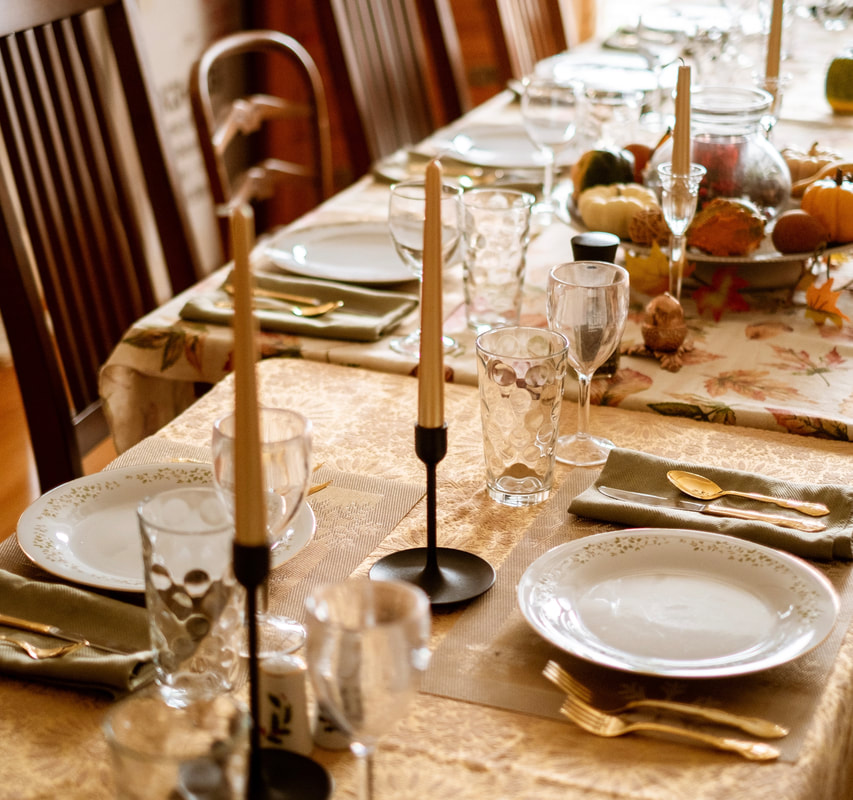 Taste and see that the LORD is good. (Psalm 34:8 NLT) Imagine you’ve been invited to Thanksgiving dinner, and you don’t have to cook or bring one thing. As you walk into the house, you’re greeted by the alluring aroma of turkey and dressing and all the trimmings, along with a variety of delicious desserts. Everything is spread on a beautifully decorated table. As your host ushers you to your place at the table, your mouth begins to water and your stomach rumbles uncontrollably. After a blessing is given, the dishes are passed around the table so that all can help themselves. But as each dish comes to you, you pass it on to the next person without taking any for yourself. Your plate remains empty as you sit there, watching everyone else eat. When your host entreats you to fill your plate and enjoy the delicious foods, you reply that you are enjoying them—they look and smell wonderful, and that is enough. “Besides,” you say hesitantly, “I believe this food was prepared for everyone else but not for me personally. To think that would be presumptuous and self-centered.” With great sorrow, your host responds, “I made this meal for each of you, and I took care to include your favorite dishes. It was a labor of love for you, and it would fill me with great joy and delight if you would taste and see how delicious it is.” Still, you politely decline, convinced the meal is meant for others but not for your personal consumption. You tell yourself you are content just to sit at the table. This scenario seems ridiculous, doesn’t it? Why would someone attend a Thanksgiving meal and refuse to eat anything, including his or her favorite foods? How could someone accept a personal invitation yet believe the meal was not intended for them? Yet, we do a similar thing when we fail to “taste and see” God’s goodness and love in the many gifts God so generously provides each day. We might notice them and, on some days, even feel gratitude for them; yet often we stop short of actually “tasting” them—receiving them as expressions of God’s very deep and personal love for us. God, who is love, showers us with “love gifts” every day—gifts of creation, other people, and experiences—all so that we can know God’s love and respond in love. A delicious meal. A beautiful sunset. A bird’s song. A loved one’s embrace. An encouraging word. A moment of joy with a child. A needed talk with a friend. A kindness from a stranger. An answer to prayer. An unexpected opportunity. And a million other things. Saint Ignatius, who lived in the 16th century, said that "everything God has created [and is continually creating in the moment] is a gift presented to us so that we can know God more easily and return God’s love more readily."* So, failing to receive these gifts as expressions of God’s personal love for us means we’re missing out on the sweetness of an intimate love relationship with God. We’re essentially taking ourselves out of the reciprocal flow of God’s love. When this happens, God is displaced in our lives and we become attached to lesser things—things that can never fully satisfy, things that leave us wanting. We tell ourselves that this is enough—that we’re satisfied to just sit at the table—but God has so much more for us. Everything God has created [and is continually creating in the moment] is a gift presented to us so that we can know God more easily and return God’s love more readily. In this season of giving thanks, I invite you not only to notice and appreciate God’s many gifts but to actually “taste” them—to receive and savor them as love gifts meant just for you. Pay attention to how God is speaking to you personally through the ordinary gifts of your daily life, and then consider how you are being invited to respond in love. You can do this at the end of the day or in the morning, reflecting on the previous day. Simply take a few minutes to recall the gifts and loving moments of the day and then reflect, prayerfully listening and talking with God. This simple practice, called the Examen, will deepen not only your relationship with God but also your relationships with others as you become more and more aware of God’s loving activity in the details of your life and choose to respond with love. It cultivates a beautiful, ongoing “love loop”—God loving you, and you responding by loving God and others. I encourage you to give it a try for thirty days and see what happens. Remember, you’re invited not just to sit at the table but to feast on God’s never-ending gifts of love. *Adapted from The First Principle and Foundation of the Spiritual Exercises, Saint Ignatius of Loyola, paraphrased by David Fleming, S.J.
Have you ever seen people on social media ask, “What has been saving your life lately?” I’m always interested to read the responses. For me, the answer is two simple but powerful words: radical grace. Growing up as a preacher’s kid, I’ve been “swimming” in the waters of grace all my life—learning about grace, singing about grace, receiving grace, extending grace—yet not always consistently and certainly not perfectly. Though I can say that God’s radical grace literally saves me every day, and I’m overwhelmingly grateful for that, it wasn’t until just a few years ago, when I began my journey through the nine-month Retreat in Daily Life (the Spiritual Exercises), that I truly began to extend this same radical grace to myself. And that has been a game changer for me. What does it mean to offer ourselves radical grace? And what is grace anyway? It's one of those "church words" that is used so often it can get watered down and lose its impact. Grace can be defined as unmerited favor, and that means undeserved approval or kindness. In other words, radical grace is lovingkindness without judgment--freely given, not earned. And the source of this lovingkindness is God. In John’s Gospel we read, “And the Word became flesh and dwelt among us, and we have seen his glory, glory as of the only Son from the Father, full of grace and truth.... For from his fullness we have all received, grace upon grace” (John 1:14, 16 ESV). In addition to God’s general grace, evident in so many gifts that are ours to enjoy every day, we have God’s specific and ultimate gift of grace through Jesus Christ. Because of Jesus, we have unlimited forgiveness, unconditional acceptance, and never-ending love. Radical grace is lovingkindness without judgment—freely given, not earned. Because God showers us with radical grace, we can extend to ourselves the same grace that we receive from God. Brennan Manning writes, “Genuine self-acceptance is not derived from the power of positive thinking, mind games or pop psychology. IT IS AN ACT OF FAITH in the God of grace.”1 To put it simply, because God accepts us as we are, we can do the same, trusting that our faithful God will do the work of refining and shaping us. This point is critical. God is the one who changes us, though we are involved in the process. So, if God accepts us completely as we are in every moment, continually showering us with lovingkindness, we can too. This kind of radical self-acceptance, made possible by God’s radical grace, is what opens us to true transformation. I’ve found this to be true in my own life, especially during the last 18 months, which have been filled with so much loss, fear, change, transition, conflict, division, and uncertainty. I’ve discovered that offering myself radical grace in the midst of the highs and the lows, just as God does, opens me to God’s deeper work within. Radical grace helps to shine a light on those tricky and sometimes imperceptible obstacles within us such as unrelenting obligation, performance, comparison, criticism, false guilt, and shame so that I can talk honestly with God about them, leading to healing and freedom. Offering myself radical grace in the midst of the highs and the lows, just as God does, opens me to God’s deeper work within. Of course, I am and always will be a work in progress. But it helps me to know that God’s love is continually at work in my life, regardless of what I may be thinking or feeling on any given day. Paradoxically, the more I accept myself as I am, the more I can let go and trust God to do the work that only God can do. The more I accept myself as I am, the more I can let go and trust God to do the work that only God can do. So, what does offering ourselves radical grace look like? Here are a few examples:
This isn't easy. Many of us find it much easier to give grace to others than to ourselves. As the saying goes, we are our own worst critics. We would never speak to a friend the way we sometimes speak to ourselves—with harsh, unkind, and even condemning words. The truth is that our inner critic is only a part of us, and this part needs radical grace, too! We can begin by speaking to our inner critic with compassion, love, and kindness, thanking it for trying to help us do better while affirming that it’s okay to be just as we are in this moment as we look to God for whatever help we need. As with anything, it takes practice to get better at giving ourselves radical grace—which goes beyond “knowing” that God gives us grace. And "practicing" radical grace requires time and persistence. But here's the good news: the more we do it, the easier it becomes to…
I encourage you to give radical grace a try. Start small and be persistent. Then begin offering yourself more and more radical grace—just as God does—and watch God work. And remember, you don’t have to worry if you’re “going too far” with grace because you can’t out-grace God! God can be trusted to complete the work begun in you. My prayer is that you, too, will be able to say that grace has not only saved your life but is saving it each and every day. You don't have to worry if you're "going too far" with grace because you can't out-grace God! 1. Excerpt from The Ragamuffin Gospel: Good News for the Bedraggled, Beat-Up, and Burnt Out, Brennan Manning (Colorado Springs, CO: Multnomah, 2008), 32. |
Hi, I'm Sally!
I'm passionate about connecting with God and connecting with people, offering spiritual encouragement and companionship. I'm so grateful to be on the journey with you as we walk with God together. subscribeArchives
July 2024
Categories
All
|
|
Copyright 2019 Sally Sharpe Spiritual Direction |
Proudly powered by Weebly
|





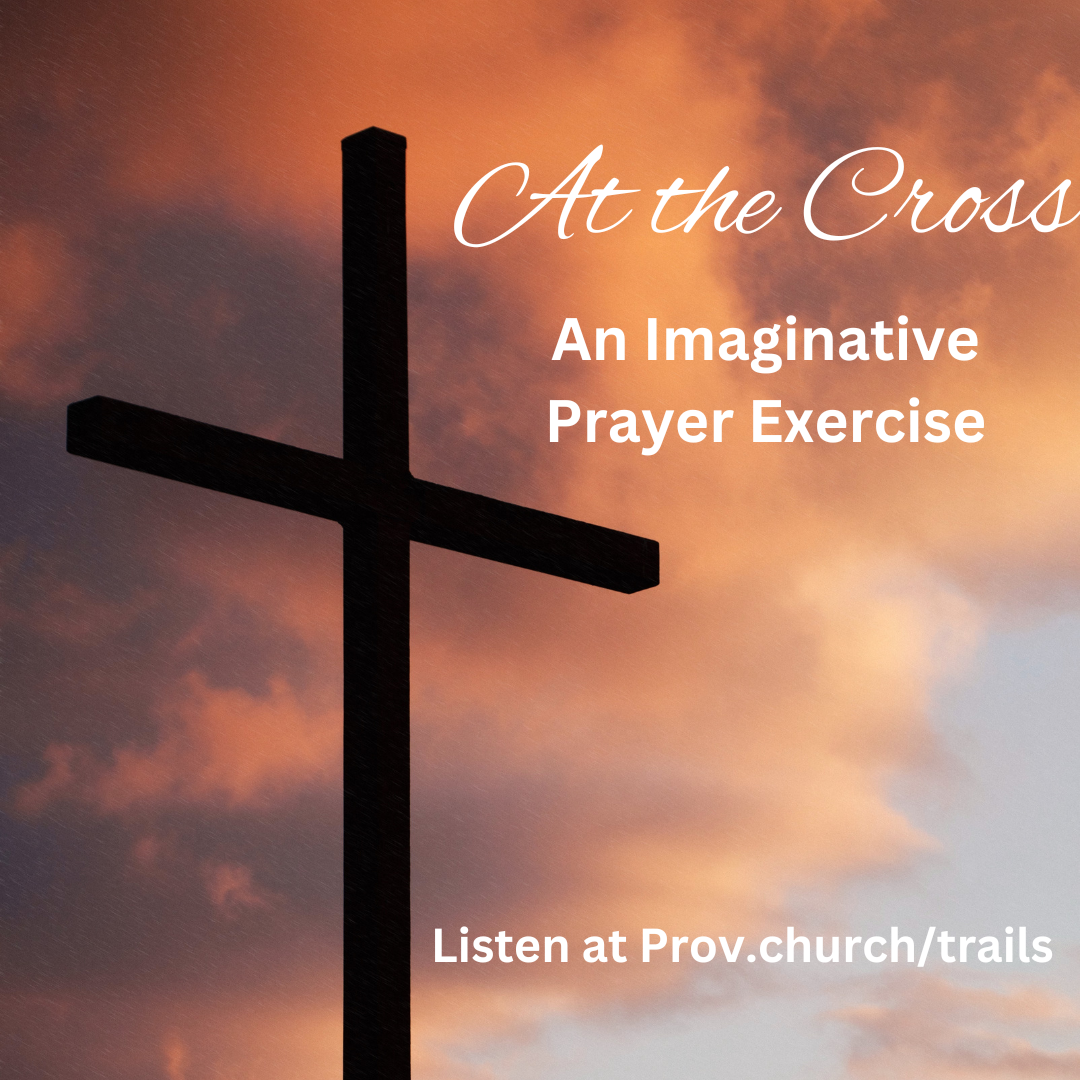
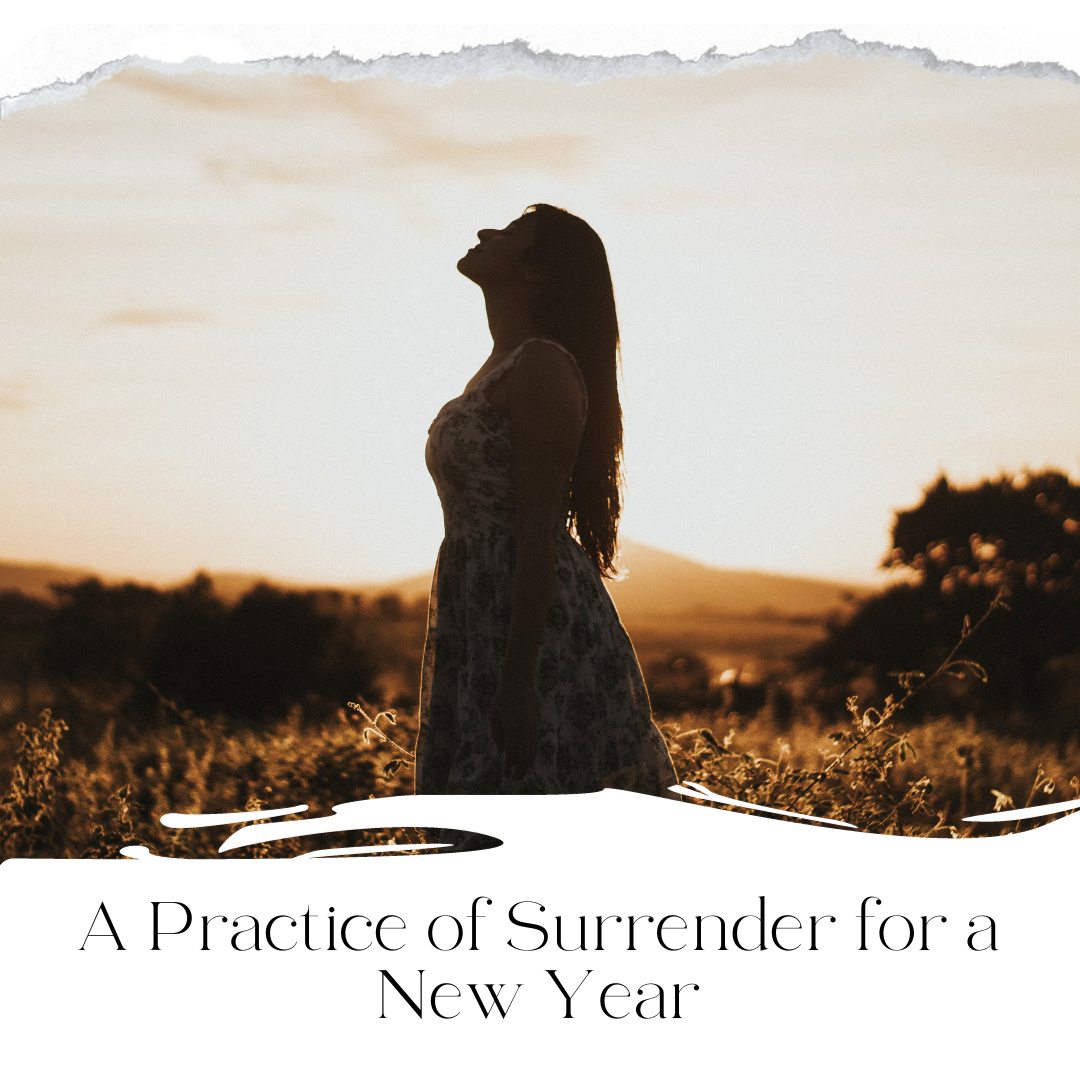
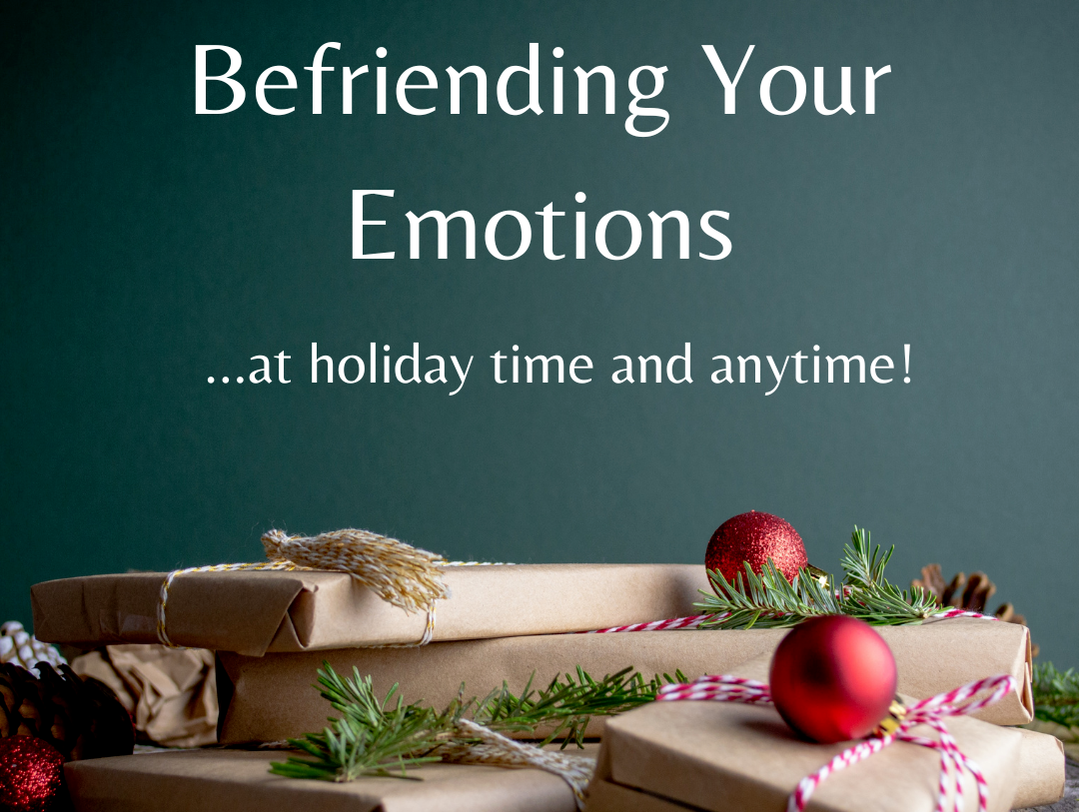
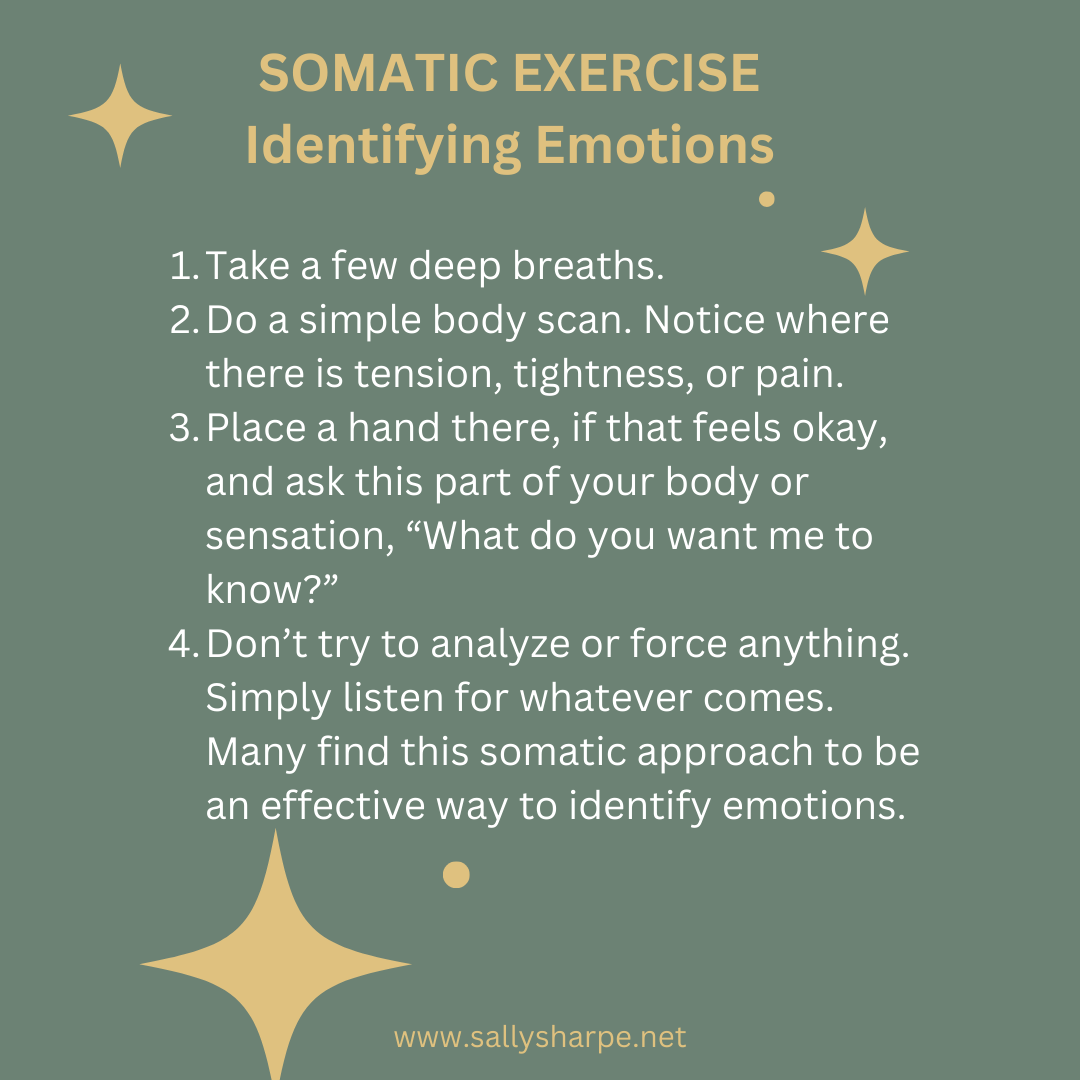
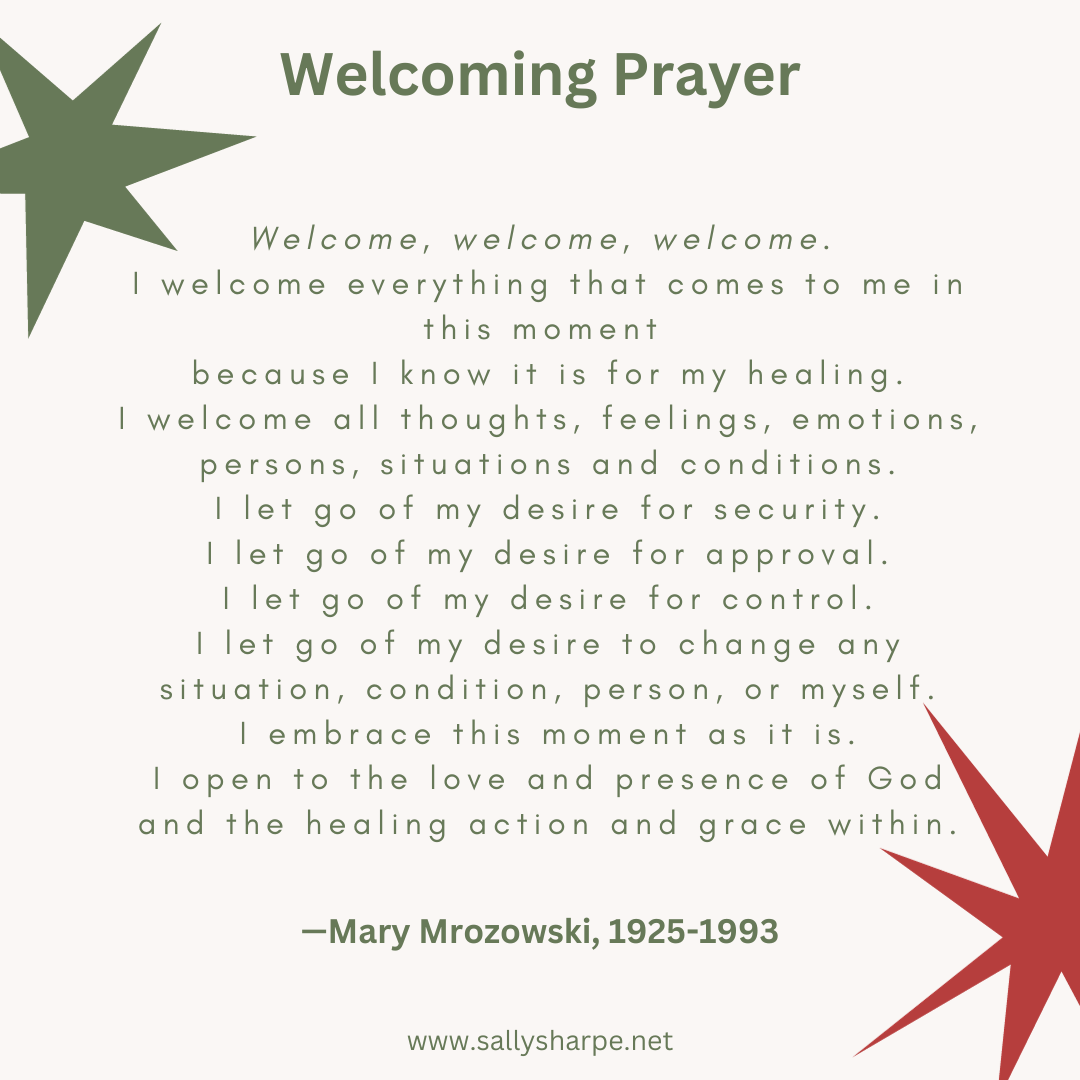

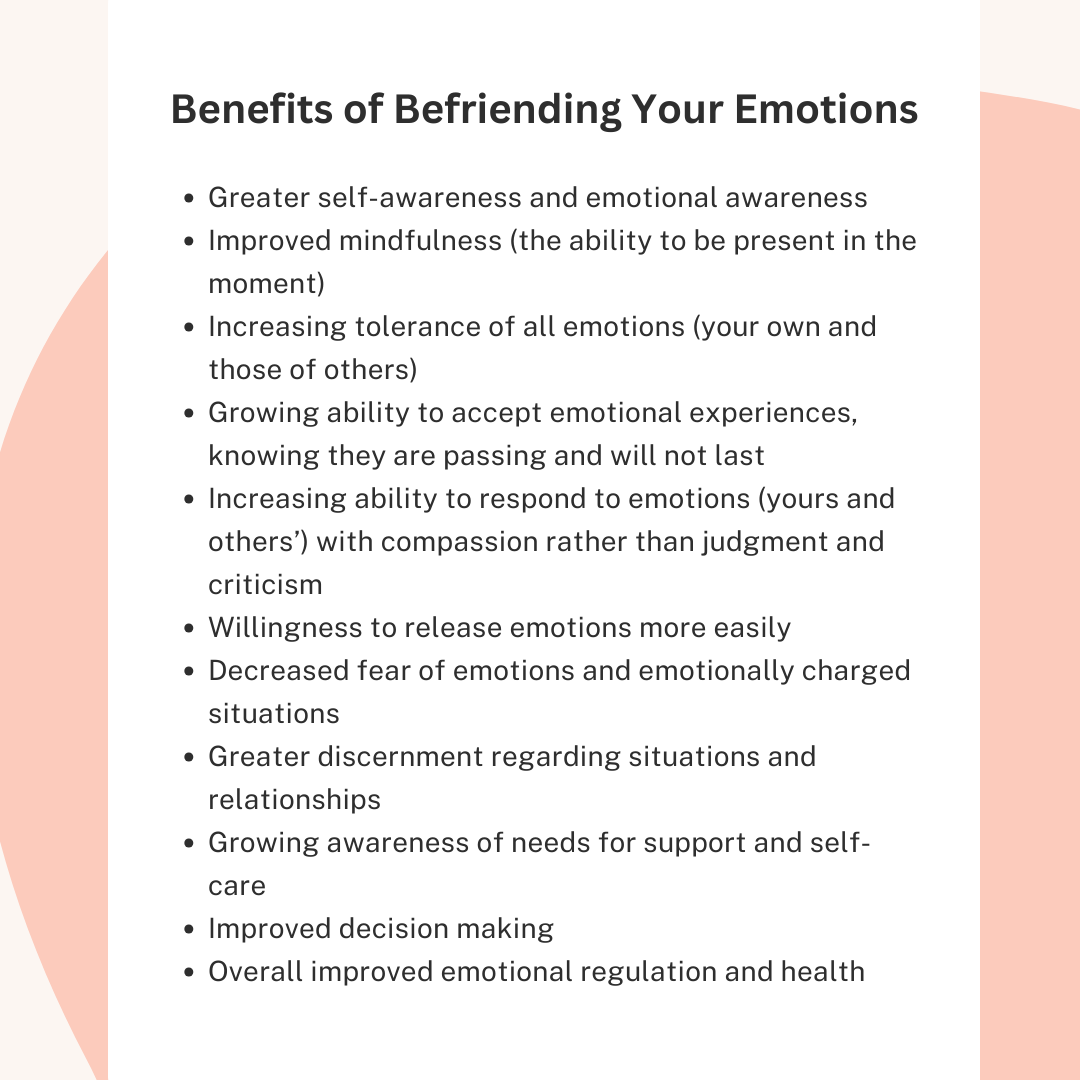
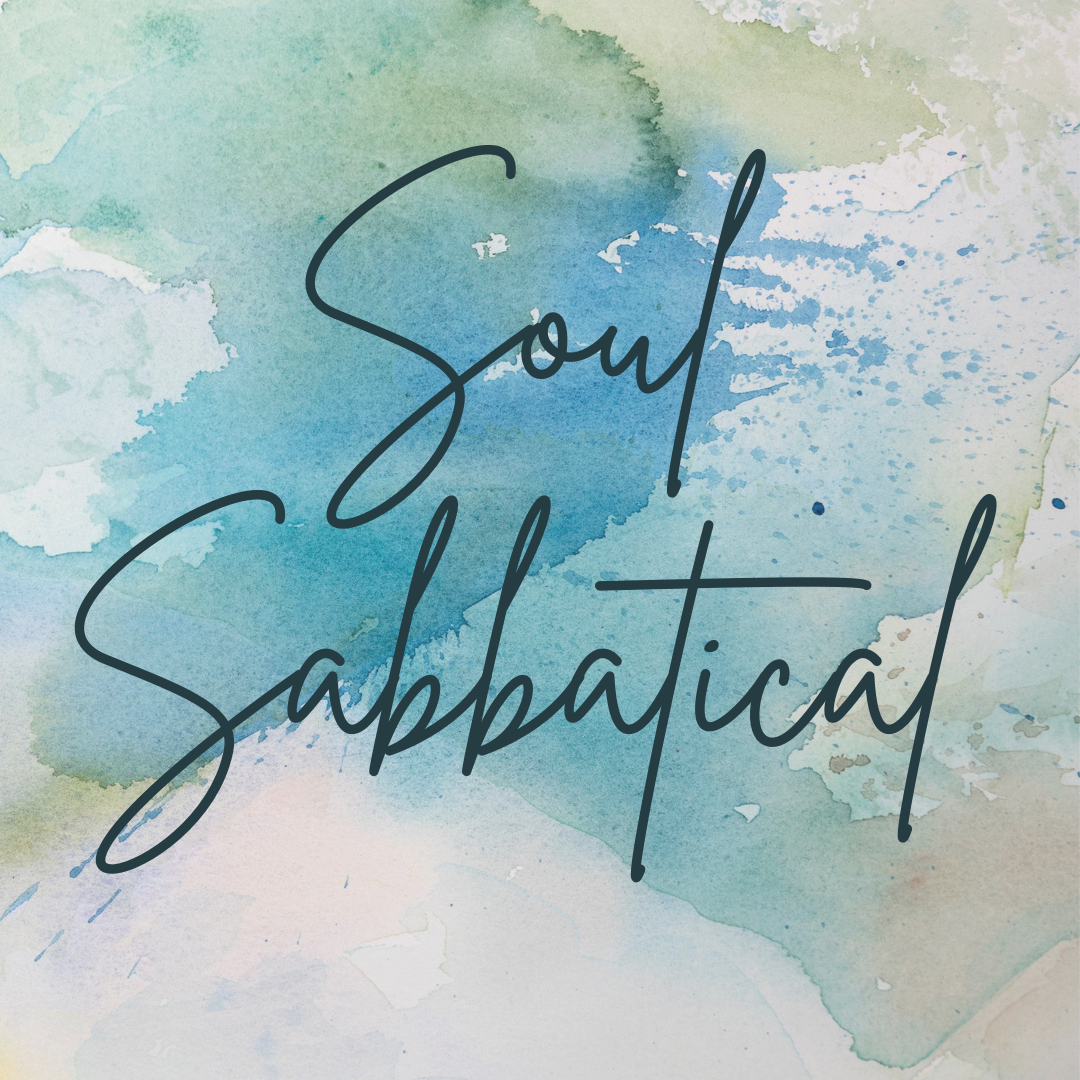

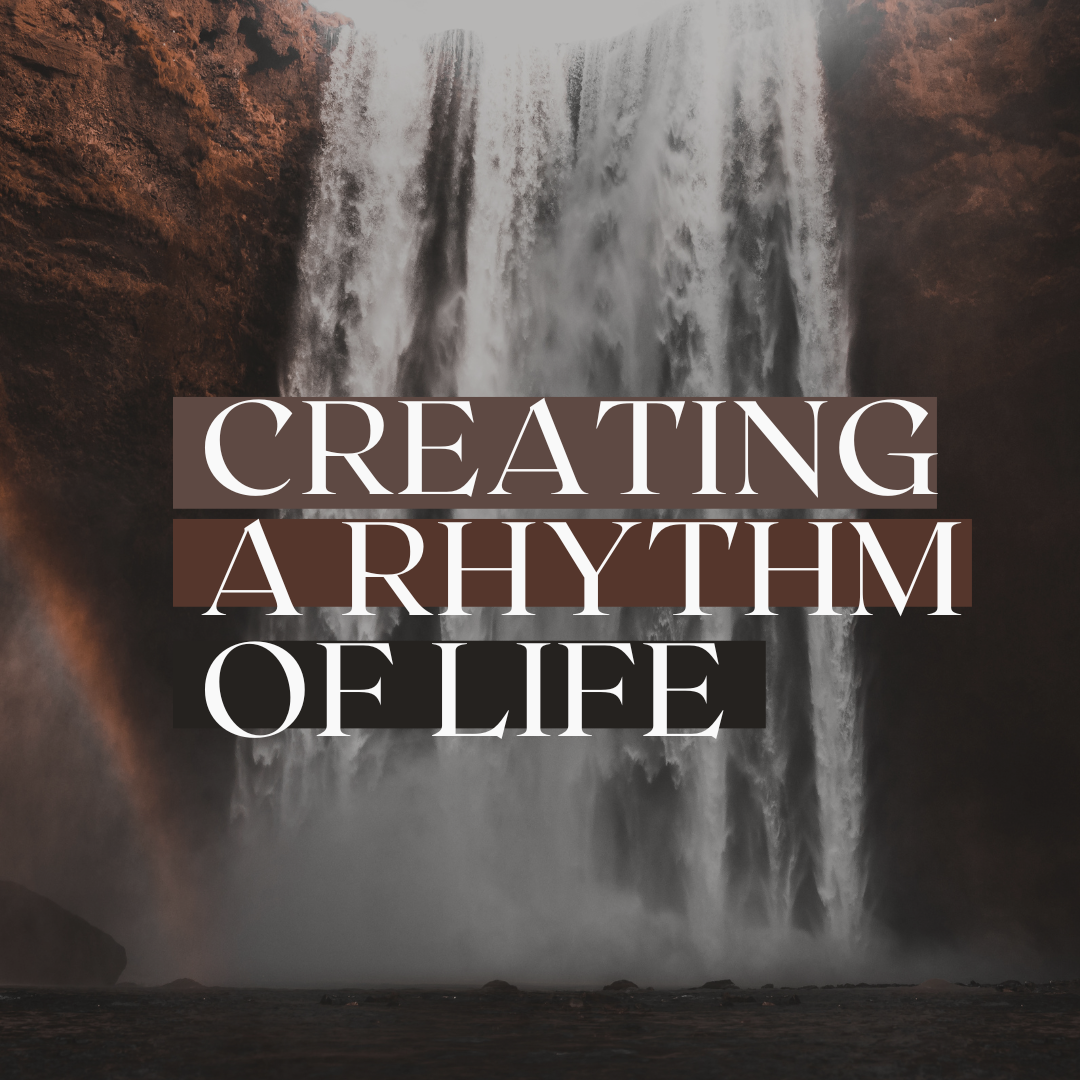
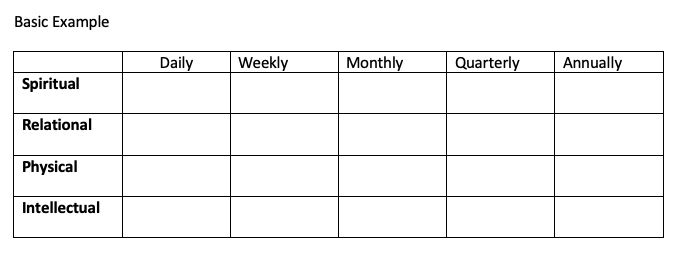
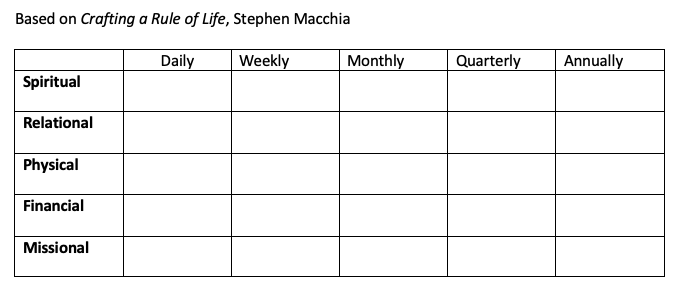
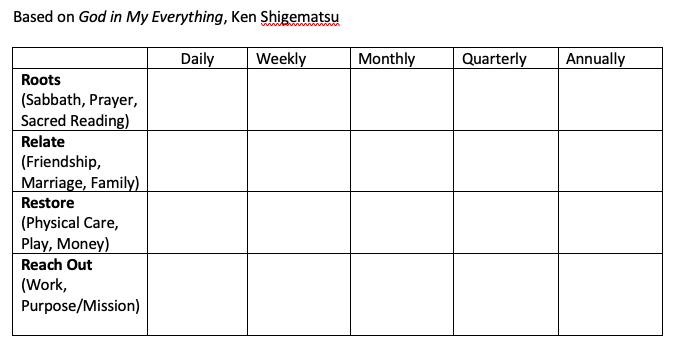
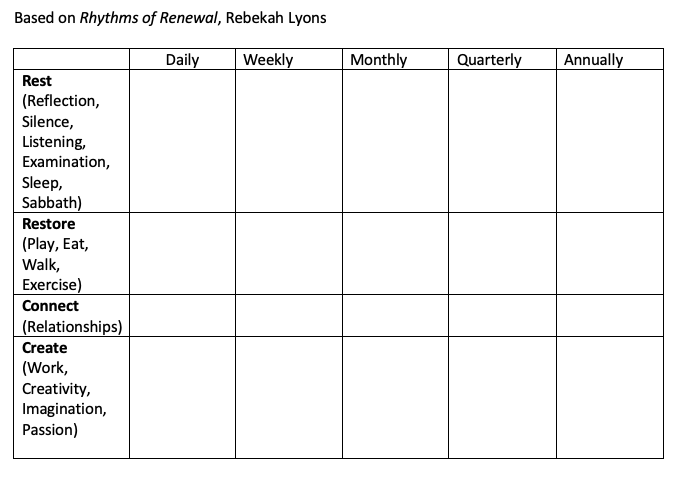
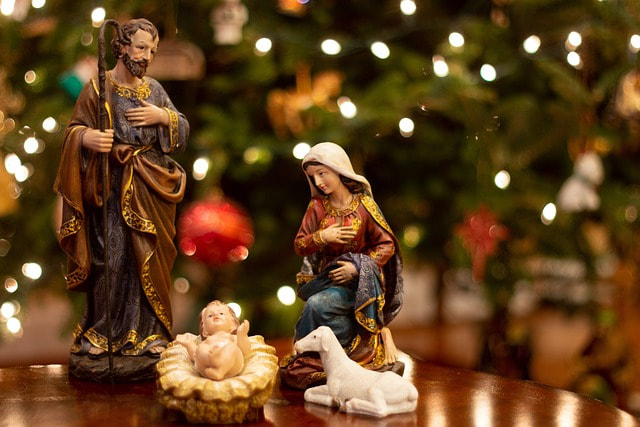

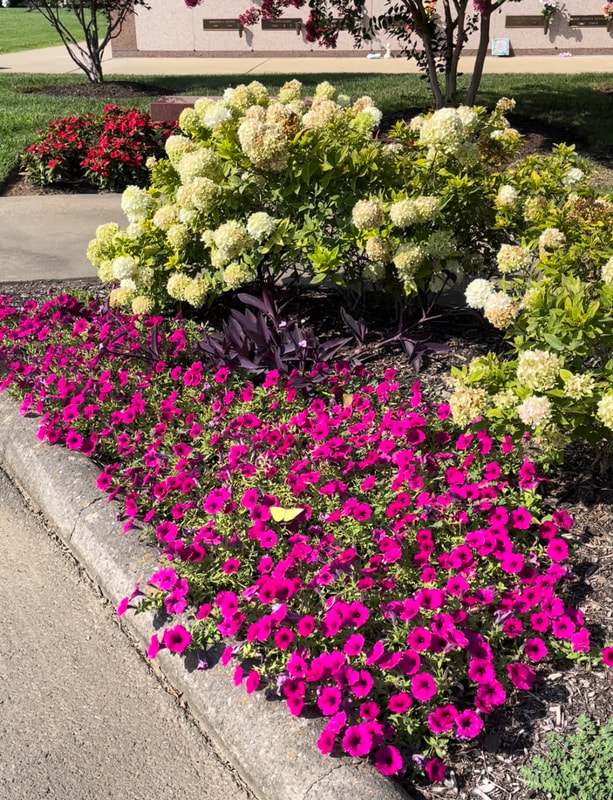


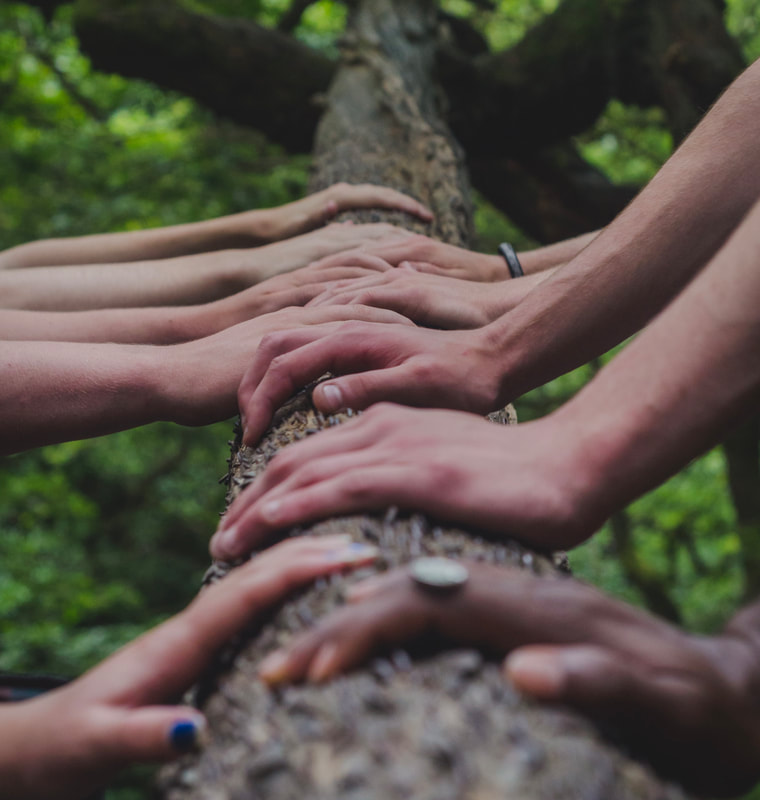




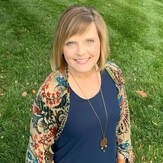
 RSS Feed
RSS Feed
